





















Амелія Уолкер Ненсі Левіс Маргарет Робінсон Олександр Любченко
«Англійська мова (5-й рік навчання)» підручник для 5 класу закладів загальної середньої освіти (з аудіосупроводом)
«English»
ТОВ Видавництво «Ранок» м. Харків























Амелія Уолкер Ненсі Левіс Маргарет Робінсон Олександр Любченко
«Англійська мова (5-й рік навчання)» підручник для 5 класу закладів загальної середньої освіти (з аудіосупроводом)
«English»
ТОВ Видавництво «Ранок» м. Харків







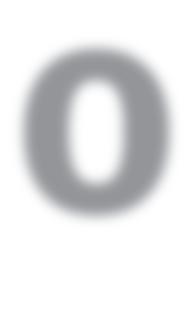















The verb be; Personal pronouns and possessive adjectives; Possessive ’s and the preposition of
Personal information; Cardinal numbers
Greetings and introductions; Talking about my family; Counting to one million
Reading: meeting someone at the air port; an application form Listening: introductions; greetings Speaking: introducing myself; greeting someone formally and informally Writing: an email to a new friend
The letter A /æ/, /aː/, /eɪ/
there is/are; Definite and indefinite articles; Possessive pronouns; Prepositions of place
Rooms in the house; House furniture
Talking about home and furniture; Describing my room
Reading: talking about a lost object Listening: showing people around the house; a description of a room Speaking: my room Writing: my house or flat
The letter E /e/, /iː/, /ə/
have/has got; Comparative and superlative adjectives
Appearance and personality
Describing appearance; Talking about personality; Comparing people and objects
Reading: describing appearance and personality
Listening: talking about classmates; describing appearance and personality Speaking: appearance and personality; thanking somebody Writing: describing a relative
The letter I /ɪ/, /aɪ/, /ɜː/
now 1
The Present Simple; Prepositions of time
Daily routine; Phrases with have
Talking about my daily routine; Asking and telling the time
Reading: a daily routine Listening: a healthy habit Speaking: a daily routine; asking and telling the time
Writing: my favourite part of the day
The letter O /ɒ/, /ɔː/, /əʊ/
57
like/dislike + -ing; Adverbs of frequency
School subjects; Leisure activities
Talking about likes and dislikes; Talking about school subjects and leisure activities; Agreeing and disagreeing
Reading: a conversation about museum exhibits
Listening: a visit to a museum Speaking: likes and dislikes; school subjects; leisure activities; agreeing and disagreeing
Writing: likes and dislikes
The letter U /ʌ/, /ʊ/, /juː/
Countable and uncountable nouns; some and any; much, many and a lot of/lots of
Food; Ordinal numbers; Celebrations
Wishing a good holiday; Talking about my eating habits; Describing traditions and celebrations; Buying food
Reading: a favourite celebration Listening: favourite food and eating habits
Speaking: eating habits; family celebrations and traditions; wishing people a good holiday
family celebrations
Unit
The Present Continuous; The Present Simple and the Present Continuous; Adverbs of manner; Prepositions of movement
Buildings and places in town
Talking about buildings and places in town; Asking for and giving directions; Accepting someone’s thanks
Reading: people describing what they are doing Listening: a London tour guide; describing photos Speaking: talking about buildings and places in town; asking for and giving directions; accepting someone’s thanks Writing: my hometown
letter C /s/, /k/
The Past Simple: the verb be; Past time expressions; The Past Simple: regular verbs; Indefinite pronouns; Prepositions of means or instrument
Unit
Geographical features Talking about my birthday and birthplace; Talking about past events
Reading: an unassisted journey Listening: adventures and adventurous teens
Speaking: past events; birthdays and birthplaces, journeys and adventures Writing: a school trip
Past Simple ending -ed /t/, /d/, /ɪd/
The Past Simple: irregular verbs Plants and animals on the farm
Talking about past events; Making and accepting apologies
Reading: a journey back in time Listening: past experience Speaking: past events; apologising and accepting apologies Writing: a story based on pictures
sounds /θ/and /ð/
can and could; must; have to and had to
Parts of the body; Health problems and symptoms
Talking about parts of the body and health; Seeing the doctor/the dentist
Reading: an accident and an urgent health problem
Listening: a dental problem
Speaking: parts of the body and health problems; present and past ability/ possibility
Writing: a health problem
The letter S /s/, /z/
The weather and seasons
Talking about arrangements and plans; Describing the weather and seasons
Reading: a description of a place and weekend plans; seasons
Listening: discussing plans; ads and voice messages
GRAMMAR VOCABULARY FUNCTIONS SKILLS PRONUNCIATION will; The Present Continuous for arrangements and plans
The letter G /g/, /dʒ/
Speaking: arrangements and plans; the weather and seasons Writing: my favourite season
Unit 12
Clothes and footwear Talking about clothes and footwear; Describing someone’s clothes; Making suggestions; Saying goodbye
Reading: clothes to wear to a party; ads and announcements
Listening: getting ready for a party
GRAMMAR VOCABULARY FUNCTIONS SKILLS PRONUNCIATION shall for suggestions; Word order (statements and questions)
The sounds /ŋ/ and /ŋk/
Speaking: smart and casual clothes; making suggestions; saying goodbye Writing: my favourite clothes; an invitation
the with geographical names
geographical names; kinds of transport; prepositions of place and direction
Talking about past events; talking about a home country
Reading: ways of travelling and kinds of transport
Listening: account of a past event
Speaking: talking about a home country; talking about past events Writing: account of a trip
Geographical names
Up to now 4 130–131 Fun time 2 132–133 Play and revise 1–12 134–145 Projects 146–148 Wordlist 149–155 List of irregular verbs 156
We use a/an before singular countable nouns. We put a when the word starts with a consonant. We put an when the word starts with a vowel.
Work in pairs. Point, ask and answer. Take turns.
Model:
2
A: What’s this?
B: It’s a notebook. It’s an apple.
Regular plural:
• We add -s to most nouns: apple + s = apples ; cousin + s = cousins
• We add -es to nouns ending in -s, -ss, -z, -x, -ch, -sh : bus + es = buses; kiss + es = kisses; quiz + es = quizzes; box + es = boxes; lunch + es = lunches; brush + es = brushes

Irregular plural:
Some nouns change in the plural: ma n me n; woma n wome n; child children ; foo t fee t; too th tee th
Copy the nouns below into your notebook and write their plural forms. student class game watch number key place letter
This is а pen. These are pens. That is a book. Those are books.
3
In your notebook, make the sentences plural.
Model:
Where is the child?
Where are the children?
pen these pens
book
you see that man
you know this woman
game is funny.
step on my foot
child is happy.
books



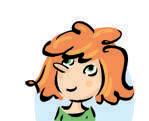

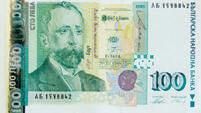





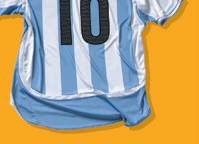













What’s the time? What time is it?
A: B: It’s twenty to seven.
Listen and repeat.
It’s six o’clock. It’s six sharp.
It’s five past six. It’s six oh five.
It’s ten past six. It’s six ten.
It’s quarter past six. It’s six fifteen.
It’s twenty past six. It’s six twenty.
It’s twenty-five past six. It’s six twenty-five.
It’s half past six. It’s six thirty.
It’s twenty-five to seven. It’s six thirty-five.
It’s twenty to seven. It’s six forty.
It’s quarter to seven. It’s six forty-five.
It’s ten to seven. It’s six fifty.
It’s five to seven. It’s six fifty-five.
It’s six forty.
Ask and answer in pairs.
A: Is it quarter past three?
B: No, it isn’t. It’s twenty past three.
and answer in pairs.
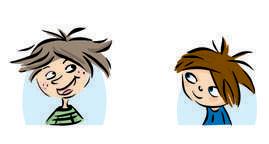
the class.
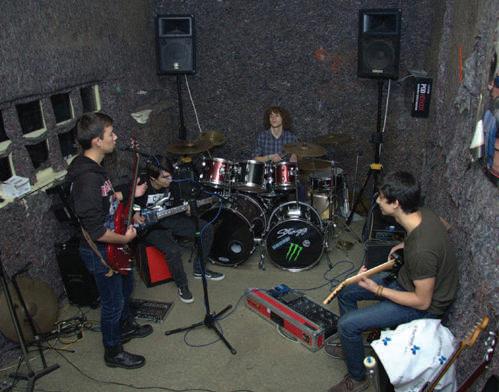
birthday?
September.
birthday
answer
September.
many days are there in
many weeks
there
many days are there
January?
many days are there in February?


many days are there in June?
many days are there in September?

a game. Student A says a month.
B says the next month.
change roles. Student B says

month. Student A says the previous
fast


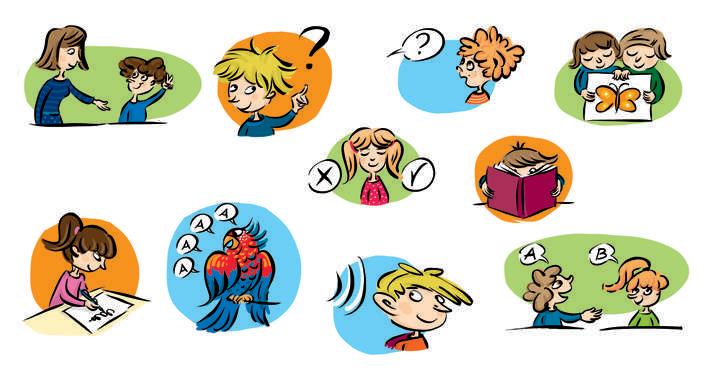

verb be
to
the questions.
you got any brothers or sisters?
you got any relatives who live abroad?

How many family words do you know?
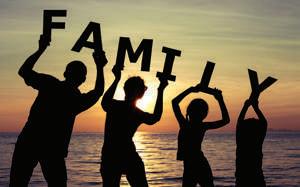
look at the words below.
the words you know.
the model and
aunt an uncle a cousin
parent a grandparent
my mother’s or my father’s
my mother or my father
my aunt’s or my uncle’s
relative
Listen and answer the questions.
Where is Alice?
What nationality is she?
Who are Victoria and Borys?
What nationality are they?
Model:
one of the parents of my mother
my father
my mother’s or my father’s sister
a person from my family such as a grandparent or a cousin
An aunt is my father’s sister.
check and repeat.
listen again and check your
the statements. Then listen to
of a conversation. Which statement
It is Victoria and Borys’s first time
London.
is Victoria and Borys’s second time in London.
Read the whole conversation and answer the questions.
Alice: Victoria: Justin: Borys: Mrs Wilson: Victoria and Borys: Mr Wilson: Borys: Victoria: Mr Wilson: Victoria: Justin: Borys:

Mum, Dad, I can see them! Over there! Hey, Vicky! Hey, Borys! Hi, Alice! Hi, Justin! I’m so excited! It’s our first time in London! Hi, Vicky! Hi, Borys! Hi, Justin! Hi, Alice!


Hello! We’re so happy to see you here!
Hello, Aunt Anna! Hi, Uncle John! Hi, kids. Are you tired?
A little bit.
Not at all.
OK, let’s go. Our car’s in the car park. Your bag’s huge, Vicky. Let me help you. Thank you, Uncle John.
Borys, I can help with your backpack. Thanks, Justin. I’m fine.

1. Who is excited?
2. Who are Anna and John?



3. Is Victoria tired?
4. Where is the Wilsons’ car?
5. Whose bag is huge?







I am I ’m you we they are you ’re we ’re they ’re he she it is he ’s she ’s it ’s
Am I ...? Are you ...? we ...? they ...? Is he ...? she ...? it ...?

Yes ,
Inside the UK London Heathrow Airport or Heathrow is an important airport near London.
I am not I ’m not you we they аre not you aren’t we aren’t they aren’t he she it is not he isn’t she isn’t it isn’t
SHORT ANSWERS
I ’mnot . you we they are . you aren’t . we aren’t . they aren’t . he she it is . he isn’t . she isn’t . it isn’t .
I am . No ,

















Model:
In pairs, complete the questions with the correct form of the verb be . Then give true answers. Follow the model.
A: Is Alice from Ukraine?
B: No, she isn’t. She’s from the UK.
A: Are Victoria and Borys in London?
B: Yes, they are.
1. … Borys English?

2. … Alice 12 years old?
3. … the Wilsons at home?
4. … Victoria excited?
5. … the Wilsons’ car in front of the airport?
I you he she it we you they
my your his her its our your their
3. Possessive ’s and the preposition of
a. Read the examples and answer the questions.
Victoria’s brother is called Borys. Excuse me, what’s the name of this street?
When do we use possessive ’s ? When do we use the preposition of ?
In pairs, say the correct form of the verb be to complete each question. Then give true answers.
1. … you Ukrainian?

2. … you 14 years old?
3. … your family big?
4. … your backpack huge?
5. … your best friend in the same school as you?
6. … your classmates excited about the new school year?
7. … English your favourite subject?
Say the correct possessive adjective to complete each sentence.
Model:
What’s your name?
1. Where’s Vicky? Only ... bag’s here!
2. Is that your brother? What’s ... name?
3. Borys and Victoria are twins. ... surname’s Andonovi.
4. We’re in class 5A. ... English teacher’s name is Mrs Kovalchuk.
5. I’m Ukrainian but … cousins are English.
Now check with the rules.
We use possessive ’s for people .
We use the preposition of for things .
b. Study the examples and match them with the rules.
1. My grandparents’ house is in the country.
2. The children’s bedroom is tidy.
3. Ben and Betty’s class is very nice.
4. Ben’s and Betty’s notebooks are in their bags.
Complete the sentences in your notebook.
a. regular plural noun + ’
b. irregular plural + ’s c. ’s after the last name when two or more people have got the same thing or things
d. ’s after each name when two or more people have got different things
Follow the model and write phrases with ’s or ’ , or of .
1. (Vicky, mobile number) Vicky’s mobile number is very easy.
2. (the children, toys) … are under the table.
3. (Justin, bedroom) … is downstairs.
4. (London, photo) Look at this … . Isn’t it wonderful?


5. (my parents, room) … is upstairs.

6. (Mrs Wilson, car) … is in the car park.
7. (your school, name) What is the …?
8. (my uncle and aunt, house) … is in Brick Street.
9. (Vicky and Borys, passports) … are in their backpacks.
1. Personal information
Look at the word web below. Listen and repeat.10
date of birth
Boys and men are male.
Girls and women are female.
gender
PERSONAL DETAILS:

ANDONOVA GENDER: Female Male
NAME: VICTORIA
OF BIRTH: UKRAINE
OF BIRTH:
ADDRESS:
LISOVA STREET, FLOOR 3, FLAT
old
95 Lisova Street, floor 3, flat 5, Kyiv

I live at ninety- ve Lisova Street, oor three, at ve. The city is Kyiv, the postcode is oh two thousand.
Shevchenkivskyi District, Building 42, Entrance B, floor 4, flat 19
I live in Shevchenkivskyi District, building forty-two, entrance B, oor four, at nineteen.
Mobile: 0038 088 769 35 40 country code mobile code number

My mobile is double oh three eight oh, double eight, seven six nine, three ve, four oh.
is her address?
is her mobile number?

12
1,001 one thousand and one 1,013 one thousand and thirteen
1,027 one thousand and twenty-seven


1,700 one thousand, seven hundred (seventeen hundred)
1,734 one thousand, seven hundred and thirty-four 2,000 two thousand
13,000 thirteen thousand
99,999 ninety-nine thousand, nine hundred and ninety-nine 1,000,000 one/a million
Say the numbers. Then listen and check your answers.
1,783 68,544 101,352 1,098,786
13
In your notebook, write down the numbers you hear. Then check your answers with a partner.
Prepositions of place: at , in , on
We use prepositions of place to say where someone or something is.
Now read the examples below.
I’m at school. (I’m there to study.)
My father is at the station. (He’s waiting for a train.) I’m in hospital. (I’m ill.)

Look. My school is on the left and mum’s office is on the right. A: Where’s Peter? B: He’s on the bus to school.
With numbers of four or more digits, we use a comma after every third digit from right to left.
at in on at the bus stop in London on the floor at the airport in France on the table at the station in Europe on the left at home in hospital on the right at school in the street on the bus
Say the correct preposition in each sentence.
Model:
I’m not at school now, I’m at home.
1. A: Where are you now?
B: I’m … the station.
2. Let’s meet … the bus stop at 3:00 pm.
We can chat … the bus.
3. My grandma isn’t … home. She’s … hospital.
4. Alice lives ... London but she’s not there now. She’s … Kyiv.
5. My school is … Park Street. It’s the red building … the right.
6. Nazar lives ... 15 Vyshneva Street.
15
Read and listen to the dialogues. Decide which one is formal and which one – informal.
You use formal English when you talk with teachers and other adults. You use informal English when you talk with friends or family members.
We use at to talk about addresses.
I live at 35 Lake Street.
We use in when we just give the name of the street.
I live in Lake Street.
A: Hi, I’m Andrew.
B: Hi, I’m Sue.
A: How are you?
B: I’m fine, thanks. And you?
A: Good morning! My name is Ben Johnson.
B: How do you do? I’m Sandy Smith.
A: Pleased to meet you.
B: Pleased to meet you, too.
Hi!
Hello!
How are you?
Greet formally
Good morning/ afternoon/evening!
Introduce yourself informally
I’m ...
My name’s ...
Introduce yourself formally
My name is …/I’m … How do you do?
Pleased to meet you.
16 Role play. Practise the dialogues in groups of four. Introduce yourself formally or informally to your classmates. Take turns.
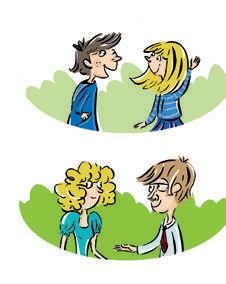
17
Read Patrick’s email to a new email friend. Then write an email to Alice or Justin. Use your personal details in place of Patrick’s.
In the UK, children start school betweenthe age of 4 and 5. Primary school is for pupils between 4 and 11 and secondaryschool – for pupils between 11 and 18.When children are 11, they are in Year 7.

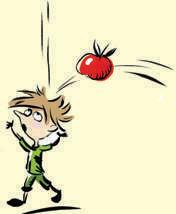
To: Subject: Hi :-)
Hi,
My name is Patrick Brown. I am English. I am 11 years old and my birthday is on 3 March. I am in Year 7. My school is called Whitmore High School and it is a big school. It is in the town of Harrow near London.
What about you?
Write soon, Patrick
Listen and repeat.18
æ aː eɪ man car name back bath take match park age hand class male apple father date thanks partner favourite

Now look at these words. In your notebook, put them into the correct group. Then listen and check your answers. baby bag are March cake cat

What is the most difficult job you know? What is the easiest job? What is the most exciting/least exciting?

19. Make a list of the jobs you know.



20. Match the jobs with the pictures.



a. lawyer b. builder c. accountant d. vet e. manicurist f. game designer g. journalist h. army officer i. hairdresser j. policewoman k. dentist l. nurse m. receptionist n. driver o. IT specialist



a housewife – a woman who works inside the home and looks after her children and husband/partner unemployed – a person without a paid job

Listen, check and repeat.
21. In small groups, talk about the jobs of your family members.
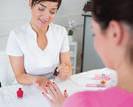
My mother is a receptionist. My father is a builder. My grandfather is/was an accountant. My aunt is unemployed.
Todor is from the Teen Photographers club. What do you remember about him? How old is he?
22. Look at the pictures and answer the questions.
1. What is Todor going to study at university?



2. What is he going to do in summer?
Listen and check your answers.
23. Listen again and circle the correct answer.



1. Todor is in a. Grade 11. b. Grade 12.
2. He is going to be a. a fashion designer. b. a game designer.
3. Todor wants to be a. an important person. b. a successful person.

4. Todor and Dimiter are going to friends from the Teen Photographers club. a. invite b. visit
We use be going to + verb to talk about plans and intentions.
Fill in.
I am going to travel with my brother. He/She ______ going to study hard. We/You/They ___ going to visit some friends in Europe.
Negative, questions and short answers
He isn’t ________ to be a doctor.
Dimiter going to be a vet?
Yes, he is./No, he isn’t.
24. Fill in the gaps with the correct form of be going to: positive and negative.
1. He likes cars. He is going to be a car mechanic.
2. I’m good at Art. I be a fashion designer.
3. They travel this week because they’re busy.

4. She be a vet. She likes animals.
5. He be an accountant. He isn’t good at Maths.
25. Complete the questions and answers. Then ask and answer in pairs.

1. She likes cooking. What is she going to be? A baker/A chef.




2. He likes driving. What ?
3. She loves working with her hands. What ?
4. They are good at acting. What ?
5. I am good at . What ?
26. Read and listen to the dialogue. Then practise in pairs.
A: What are you going to be?
B: (I’m going to be) A designer.
A: Why do you like this job?
B: It’s creative. And it’s well-paid. What about you?
A: I’m going to be a vet.
A: Why do you like this job?
B: I love animals.
A: What are you going to be?
B: (I’m going to be) a/an … .
A: Why do you like this job?
B: It’s … ./I like … .
27. Make similar dialogues. Use the ideas in the box and your own ideas!
It’s well-paid/fun/interesting.
I like I love I adore
animals/cars/good food. working alone/in a team. helping people. doing things with my hands.

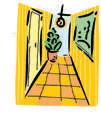



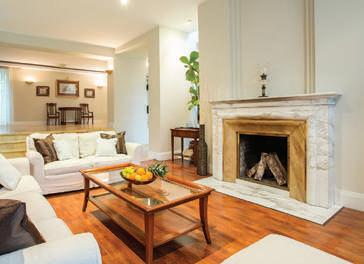
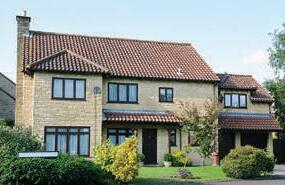

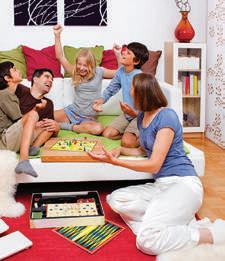



1. What can’t Mrs Wilson find?
2. Who is it for?





Now read the whole conversation and the sentences below. Say true or false. Correct the false sentences.
Mrs Wilson: Alice: Mrs Wilson: Justin: Mrs Wilson: Mr Wilson: Mrs Wilson: Alice: Mrs Wilson: Borys: Mrs Wilson:






Mr Wilson: All:
Alice, Justin. Where’s the spare key? I want to give it to Vicky and Borys. I think it’s under the flowerpot in the hall.
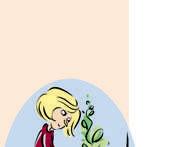
I’m afraid it isn’t there, Alice. Isn’t it on the bookcase?
No, Justin, it isn’t. Check the kitchen cupboards, dear. I’m sure it isn’t there.



Mum, what about your handbag? There are all kinds of things in there. Come on, Alice, don’t be cheeky. This key’s somewhere in the house. Aunt Anna, there’s a key in the living room. It’s on the shelf over the fireplace. On the mantelpiece you mean? Yes, that’s the spare key!
Keep it!
Hey, where are my glasses? I can’t find them. Oh, no ...
1. There is a flowerpot in the hall.
2. There aren’t many things in Mrs Wilson’s handbag.
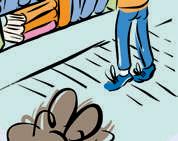
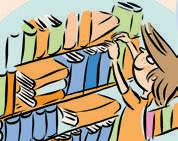
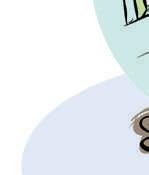

3. There is a fireplace in the living room.

4. Mr Wilson’s key is on the mantelpiece.
5. Mr Wilson can’t find his mobile phone.
1. There is/There are Forms
There is a chair in the room.
There are two chairs in the room.
Is there a chair in the room?
Are there two chairs in the room?
Model:
Answer the questions.
When do we use there is ?
When do we use there are ?

There isn’t a chair in the room.
There aren’t two chairs in the room.
Yes , there is . there are .

No , there isn’t . there aren’t . ARE .
Now check with the rules.
We use there is with singular nouns. We use there are with plural nouns.
Say there is or there are to complete each sentence. Follow the model.
There are four chairs in the dining room.
1. … two beds in my bedroom.
2. … a table near the window.
3. … two cupboards next to the door.
4. … a key on the bookshelf.
5. … a fireplace in the dining room.
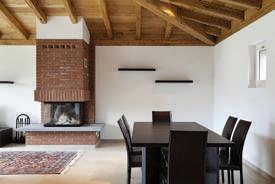
6. … four bedrooms in the house.
7. … a flowerpot next to the door.
2. Articles
The indefinite articles a/an and the definite article the Read and compare the examples. Answer the questions.
There’s a bathroom downstairs. The bathroom is next to the living room. There’s an armchair in front of the fireplace. The armchair is new.
When do we use a/an ?

Now check with the rules.
When do we use the ?
We use a/an when we mention something for the first time.
We use the when a. we mention something for the second time.
b. there is only one of the things we are talking about.
8
Model:
Say a/an or the to complete the sentences.
There’s a dining room next to the kitchen.
1. Is there … flowerpot in … hall?



2. A: Excuse me, where is … bathroom?
B: It’s on … first floor.
3. How old is … boy in … photo?
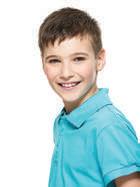
Use a for words starting with a consonant.
Use an for words starting with a vowel.
4. There’s … bookcase in my bedroom. It’s next to … door.
5. Mr Wilson’s glasses are on … sofa.
Read the examples and answer the questions.
This is my room.
This room is mine.
It’s her camera. This camera is hers.
Your glasses are on the table.
The glasses on the table are yours.
When do we use my , your , etc?
When do we use mine , yours , etc?
Now check with the rules.
We use my , your , etc before a noun.
We use mine , yours , etc without a noun.
my your his her its our your their
mine yours his hers its ours yours theirs
Say the correct possessive pronoun to complete each sentence. Follow the model.
A: Whose keys are on the mantelpiece? Are they yours?



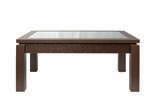

B: Yes, they’re mine
1. Where’s Alice? Isn’t this bag …?
2. My parents have got a lot of books. All these books are … .

3. A: Is this Justin’s bedroom?


B: Yes, it’s ... .
4. My brother and I have got a big collection of CDs. All the CDs here are … .
5. This pink umbrella is not ... . My umbrella is blue.
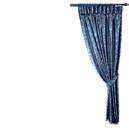

Make correct sentences.
Say the right possessive adjective or pronoun.
1. Have you got your / yours mobile on you? I haven’t got my / mine.
2. The Wilsons are waiting for their / theirs cousins at the airport.
3. A: This isn’t my / mine workbook. B: I’m sure it’s your / yours.
4. My backpack is very old, not like my / mine sister’s. Her / Hers is brand new.
5. Your / Yours dog is very large. Our / Ours is tiny.
6. Where’s Vicky? Her / Hers mobile is ringing.


bed
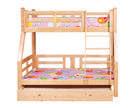
12
Copy the table into your notebook. Write the words in 11 in the correct column. Add any other words you know. Compare with a partner.
Model:
13 MIND THE PREPOSITONS!
In pairs, ask and answer about the furniture in your flat or house. Use the information from the table in .
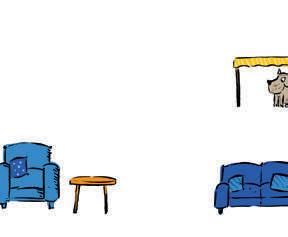

A: Is there a TV cabinet in your living room?
B: Yes, there is. / No, there isn’t.
Prepositions of place: on, under, behind, in front of, next to, near

We use prepositions of place to say where someone or something is.
Now look at the pictures and read the examples.
The laptop is on the table. The book is under the table.
The bike is in front of the house. The car is behind the house.
Look at the pictures. Say the correct prepositions.14

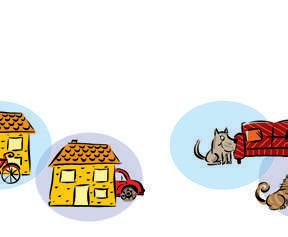
Model:
The dog is next to the sofa.
The cat is near the sofa.
1. The rug is ... the fireplace.
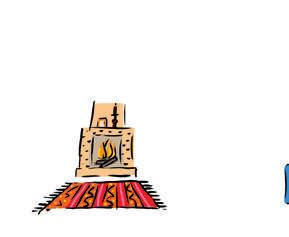
2. The armchair is ... the coffee table.
The dog is under the table.
3. The sofa is ... the armchair.
4. The picture is ... the wall.
5. The bookcase is ... the armchair.
6. The key is … the rug.
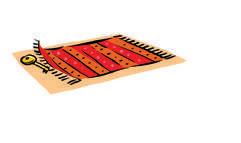
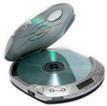
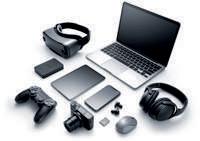







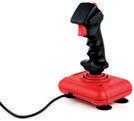





Which of these gadgets:
have you got?
don’t need a desk to work on?
can work on a desk?
can you use for playing games?
can you use with both hands?
can help your other gadgets
the sentences with necessary words. There are the first letters.
I need a c… for my s… , its b… is low.
can use this U… for a m… or for a j
dad has got a new l… at his work and an old d… at home.
would like a new t… or a g… c… as a birthday present.
smartphone takes wonderful photos, so I don’t need a d… c… . I like to read books on my e… when I’m on a train or bus.
the crossword. Can you guess
can take this computer
use
key word?
can use it for reading books.
computer
on
use this gadget
other
desk.
you play


Read and listen to the conversation. Then practise in pairs.
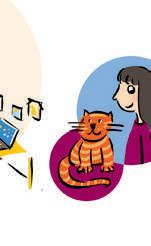
Vicky: Wow, your bedroom is lovely!
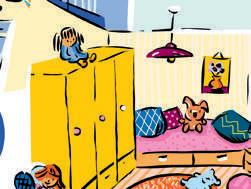
Alice: Thanks. And what’s your bedroom like?
Vicky: It’s not mine, it’s ours. I share the bedroom with Borys and Memory.
Alice: Who’s Memory?
Vicky: She’s our cat.
Alice: Oh, what a funny name for a cat!
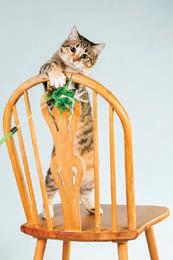
Vicky: Yep! So in the bedroom there are two beds, two desks, two small wardrobes but three chairs – one for me, one for Borys, and one for Memory. And there are a lot of posters on the walls. There’s also a laptop and a game console.

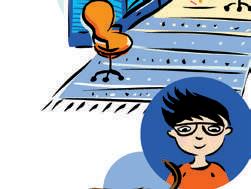
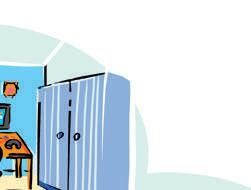
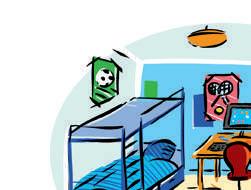
Alice: A game console? Cool!
Work in pairs. Choose one of the rooms below. It’s your room. Talk about it with your partner. Follow the conversation above as a model.



Describing my house or flat
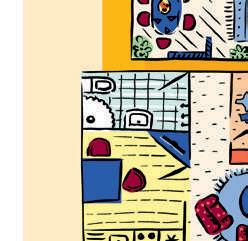
Read the text. Which drawing matches the description?

Our flat is very modern. There are two bedrooms, a living room, a dining room, a kitchen, and a bathroom. My parents’ bedroom is big. My room is small and sunny. There is a bed, a desk, a chair, and a wardrobe. My laptop and school things are on the desk. My clothes are everywhere.
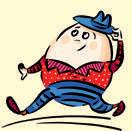

Write a description of your home. Follow the model above.



22
Listen and repeat.
egg email kitchen desk she listen best week modern
Now look at these words. In your notebook, put them into the correct group. Then listen and check your answers. bedroom garden see collection children street
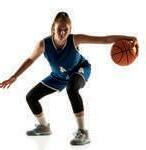

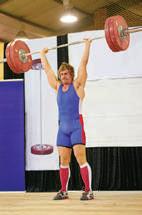
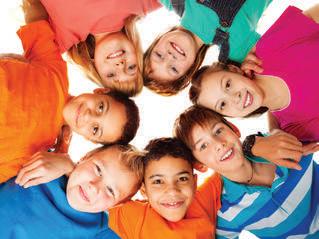

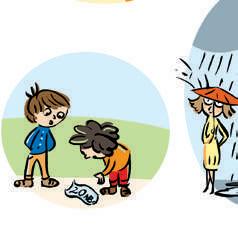
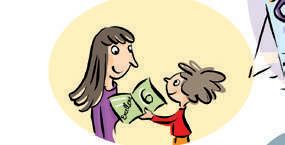

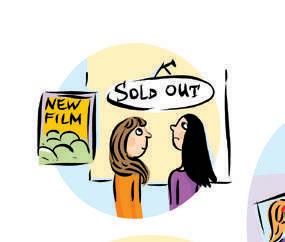
Listen and answer the questions.
Now read the whole conversation and the questions below. Choose the correct answer.
Alice: Borys and Victoria: Alice: Borys: Alice:
Hello everybody, I’m back home!
Hi, Alice! How are you?
Fine. I’m so happy it’s holiday time! And how are you, school kids?
Good. Summer school is fun.
Excellent! And what’s your teacher like?
Borys:
In fact, we’ve got two teachers, Mrs Adams and Mr Daniels but we call them Kate and Alan.
1. Who is at home?
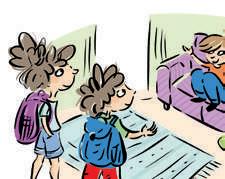
2. Who has got new friends?
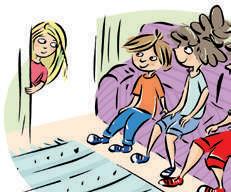
Now listen again and answer the questions.
1. Where is Alice?
2. How many girls are there in Vicky and Borys’s group?
3. What is Justin interested in?
Listen to part of another conversation and answer the questions.
1. How many teachers have Vicky and Borys got?
2. What are their names?
Victoria: Borys: Alice: Victoria: Borys: Victoria: Alice:
Alan is very serious. Kate is funnier than him.
But he’s more patient.
What do they look like?
Alan is tall and skinny. He’s got curly red hair and blue eyes.
He looks like a pop star. Kate is shorter than Alan. She’s got big brown eyes and dark hair.
Great! Summer school sounds fun.
1. Why is Alice happy?
a. Because she is back home. b. Because school is over.
2. Alan is a. a pop star. b. an English teacher.
3. Kate has got a. red hair and blue eyes. b. dark hair and brown eyes.
What’s she like? =
Tell me something about her personality.
What does she look like? =

Tell me something about her appearance (eyes, hair, etc).

7
Model:
I you we they have got I ’ve got you ’ve got we ’ve got they ’ve got he she it has got he ’s got she ’s got it ’s got
Have I you we they got ...?
Has he she it
Yes ,
I you we they haven’t got he she it hasn’t got
Say the correct forms have got , has got , haven’t got , hasn’t got to complete each sentence. Follow the model.

I have got a new friend.
1. Mr Daniels … curly brown hair. His hair is red.
2. … Justin … a new mobile?
3. … your parents … a car?
I you we they have . No ,
I you we they haven’t . he she it has . he she it hasn’t .
In short answers, we do NOT use got !
Yes, I have. / Yes, she has. No, I haven’t. / No, she hasn’t.
4. A: I’m sorry, I … a pen today. B: Here you are – I … two.
5. Lucy … a cat because her mother doesn’t like pets.
Kate is shorter than Alan. Alan is more patient than Kate. The girls in our class are the prettiest in the school. This is the most beautiful house in our street.

Short adjectives tall thin pretty
taller thinn er pretti er
the tallest the thinn est the pretti est
Long adjectives patient interesting more patient more interesting the most patient the most interesting
Irregular adjectives
good bad far much/many little
Answer the questions.
When do we use -er and the + -est? When do we use more and themost? When do we use than ?
8
Model:
9
Model:
better worse further more less


Now check with the rules.
the best the worst the furthest the most the least
We form comparative adjectives by adding -er to short adjectives and more to long adjectives. We use than after comparatives. We form superlative adjectives by adding the + -est to short adjectives and the most to long adjectives.
In your notebook, complete the sentences. Use the comparative form of the adjectives. (short) Holidays are shorter than the school year.
1. (sunny) Summer is … than autumn.
2. (difficult) Writing is … than speaking.
3. (small) Ukraine is ... than the UK.
4. (exciting) Summer school is … than ordinary school.
5. (large) Your flat is … than ours.
6. (good) Borys is … at English than Vicky.
In your notebook, complete the questions. Use the superlative form of the adjectives. Then ask and answer in pairs. Give true answers. (big) What’s the biggest city in the UK?
1. (young) Who’s … member of your family?
2. (busy) Who’s … person in your family?
3. (good) Who’s your … friend?
4. (bad) What’s your … nightmare?
5. (difficult) What’s … English word you know?
6. (interesting) What’s … subject at school?
Appearance
listen
Look at the pictures of three avatars. Then read the text. Which avatar
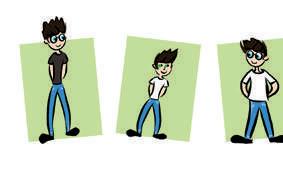
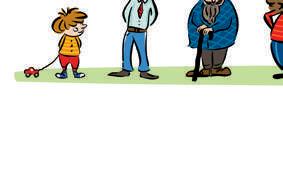
repeat.
We say: He is tall. but He is of medium height.
description?
This is Transporter Jack. He’s got short black hair. His eyes are blue. He’s got glasses. Transporter Jack is tall and slim.

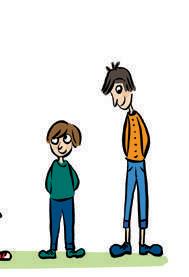

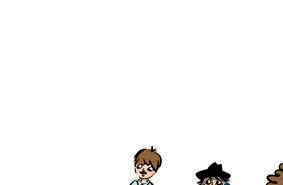
In your notebook, write a description of one of the other two avatars. Then read it to your partner.
him/her which avatar matches the description.

2. Personality
the words and their definitions.
to guess their meaning. Then listen and repeat.
We use adjectives like patient , shy and unfriendly to describe personality. We call them ADJECTIVES OF PERSONALITY.
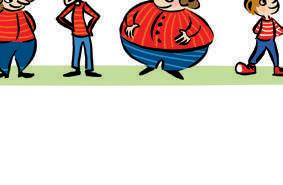
someone who can wait a long time impatient someone who can’t wait a long time friendly someone who is nice to other people unfriendly someone who isn’t nice to other people polite someone who has got good manners impolite someone who hasn’t got good manners communicative someone who likes to talk shy someone who is quiet and a bit nervous around other people clever someone who learns and understands things quickly
patient
you know any other adjectives of personality?
Copy the table into your notebook. Write the adjectives in 12 in the correct column. Add any other adjectives of personality you know.
Listen to Vicky talking about two of her new friends. Tick the adjectives of personality you hear in the table in your notebook.
Listen again. Now write A for Alexa and B for Bella next to the adjectives in your table.
Work in pairs. Use your notes and talk about Alexa and Bella. What do they look like? What are they like?
Read and listen to the conversation. Then practise in pairs.
Remember!
We usually use handsome for boys and men.
A: I know you’re really good at making avatars.
B: Yes, that’s right.
A: Can you make an avatar for my friend Jenny? B: Sure. Let’s start. What does she look like?
Thank you very much!
Thanks a lot!
Thanks a million!
A: She’s thin and short. She’s very pretty. plump of medium height handsome cute B: What colour is her hair?
A: It’s brown. blonde black red
B: Is it long or short?
A: It’s long. short B: OK. Long brown hair. What colour are her eyes?
A: They’re blue. And big. black green brown small B: OK. Big blue eyes. Let’s see. Is this Jenny?
A: Wow, you’re great! That’s her. Thank you very much! him
Make a similar dialogue about the avatar for a friend. Replace the words in bold with the ideas on the right. Draw the avatar.
Work in pairs. Choose a role: Student A or Student B. Read the role cards and make a dialogue. Then change roles and make another dialogue. You can use the dialogue in as a model.



Choose a classmate but don’t tell Student B his/her name. Tell Student B you’ve got a new friend. Answer student B’s questions about your friend.
Student A has got a new friend from your class.
Ask Student A about his/her new friend’s appearance.
Guess who Student A’s new friend is.
Describing appearance and personality



the description
My grandma’s name is Maria but everybody calls her Mimi. She’s 58 years old. She’s my mum’s mother.

My granny isn’t very tall. She’s a bit plump. She’s got short straight grey hair. Her eyes are brown and she’s got glasses.


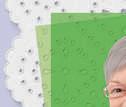
My granny is kind and patient. She’s the best granny in the world.

Which paragraph
the person?
Which paragraph describes her appearance?
Which paragraph describes her personality?
a similar description
a family member or a friend. Follow the model.
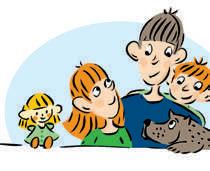
When you describe someone’s hair, always use the following order of adjectives:

HAIR LENGTH HAIR STYLE HAIR COLOUR short straight red She’s got short straight red hair.
When you describe someone’s eyes, always use the following order of adjectives:

EYE SIZE EYE SHAPE EYE COLOUR big round black He’s got big round black eyes.
Now look at these words. In your notebook, put them into the correct group. Then listen and check your answers. mobile bird kid mine thirty holiday
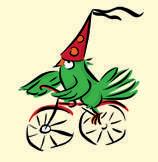
Listen to the text. What is the best title? Write the correct answer in your notebook.
Classrooms in Australia
Students in Australia
Schools in Australia
Listen again and write the correct answers in your notebook.
1. The Australian school year lasts
100 days.
200 days.
300 days.
2. There are … in a school year.
two terms
three terms
four terms
3. Students have … of holiday between terms.
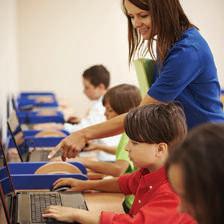
two weeks
three weeks
four weeks
4. The school day is
from 8:30 am to 3:00 pm.
from 9:00 am to 3:30 pm.
from 9:30 am to 3:30 pm.
Read the article. In your notebook, answer the question: What is the UpsideDown House?



A. Look at the photos. Can you guess what this is? This is one of the tourist attractions in Bukovel, Ukraine. It is called the Upside-Down House
B. The house has two floors. On the ground floor you can see a utility room and a bathroom, on the second floor there is one big room with large windows.
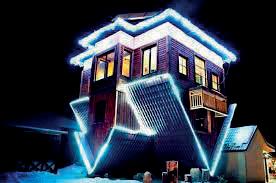
C. The house is upside down not only outside but also inside — all the furniture is on the ceiling.
D. The unusual house is open for tourists all year round. The pictures that you can take while inside the UpsideDown House are good to share with friends on social networks.
Source: Source https://ukraine-kiev-tour.com/ bukovel-upside-down-house.html
Read the text again. In your notebook, write true or false. Correct the false sentences.
1. The Upside-Down House doesn’t have many rooms.
2. It is in one of European countries.
3. It has got only one floor.
4. It has got a lot of very small windows.
5. There is a bed on the ceiling.
6. In winter, the house is closed for tourists.
Work in pairs. Each pair chooses a topic for conversation.
Pair A. Family, appearance and personality
Follow the instructions and make a dialogue. Take turns.

Ask about the people in Student B’s family. Ask Student B to describe a family member. Ask about his/her personality.
Answer Student A’s question.
Describe the person’s appearance. Use adjectives of personality to describe the person.
• there is / there are
• on the left / on the right
• in front of / behind / next to
Choose a picture in 3 and describe it to your partner. Use the expressions in the box. Take turns.
• red / pink / orange
• small / large
I know how to:



introduce myself formally and informally. greet people. thank people. talk about my family and relatives. describe my room. talk about my home and furniture. describe a person’s appearance and personality.
I can:
Go to page 22 in Workbook 1 to do the Grammar and Vocabulary sections. use personal pronouns and possessive adjectives. express possession. use the definite and indefinite articles. compare people and things.

Grammar:
Answer the questions.
What are the days of the week?
What are the weekdays?
When is the weekend?
What is your favourite part of the day? What do you do then?

Look at the pictures.
Read the sentences and try to guess the meaning of the phrases in bold.
3.
1. They have a rest after lunch.
Listen and choose the correct answer.
1. What part of the day is it?
a. Morning.
b. Noon.
c. Afternoon.
2. What does Justin do three times a week?
a. He goes swimming. b. He goes walking.
c. He goes running.
go
2. My dad has a nap
Sunday
Now listen and repeat.
Now listen again and answer the questions.
1. Where do Justin and his dad go jogging?

2. Who goes jogging every morning?
3. Do Vicky and Borys want to join?

4. Does Justin get up early at weekends?
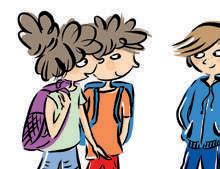
Where does Alfredo come from?
2. What do people in Alfredo’s country do after lunch?

Alfredo: Victoria: Alfredo: Borys: Alfredo: Victoria: Borys: Alfredo: Victoria: Alfredo: Borys:
I’m so sleepy. Are you? Why? I need my siesta. Siesta? What does that mean?
It’s a rest or a nap after lunch. I come from Spain, you know. In summer, it’s very hot there. That’s why we have a rest for two or three hours in the afternoon. Most shops and offices close. They open again at 4:00 or 5:00 pm. How interesting. It’s very hot in summer in Ukraine, too, but people don’t have a siesta. And what time do people finish work in Spain?
My parents come home around 8:00 pm.
We have dinner between 9:00 and 11:00 pm. Really? So late?
Yes. We don’t go to bed before midnight or even 1:00 am. That’s so cool!
1. Why is Alfredo sleepy?
2. What does siesta mean?
3. Do most shops and offices close after lunch?

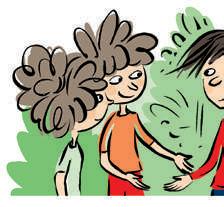

Remember!
What does it/that mean? or What is this/that in English? We ask these questions when we don’t know a word.
What time do they open again?
When do Alfredo’s family have dinner? Why?
What time do Alfredo’s family go to bed?
I You We They like music. He She It like s YES / NO QUESTIONS
Do I you we they like music? Does he she it
WH QUESTIONS

I You We They don’t like (do not) like music.
He She It doesn’t (does not) like
Yes ,
What Where

do I we you they like ? live ? does he she it
Now check with the rules.
I you we they do . No ,
I you we they don’t . he she it does he she it doesn’t
Answer the questions.
When do we use verb + -s ? When do we use do/does ? When do we use don’t/doesn’t ?
We use verb + -s after he/she/it in positive sentences. We use do/does + base form of the verb in questions and only do/does in short answers. We use don’t/doesn’t + base form of the verb in negative sentences and only don’t/doesn’t in short answers.
base form of the verb = verb without to
Read the examples and match them with the rules.
1. The Earth goes around the Sun.
2. I like chocolate. I don’t like soft drinks.
3. Dad goes jogging every morning.
We use the Present Simple to talk about a. something that is always true. b. likes and dislikes. c. habits.
8
Model:
Model:
VERB + S sleep make + s play
sleep s make s play s cr y stud y + s tr y
cr ies stud ies tr ies go catch + es kiss
go es catch es kiss es
Copy the table into your notebook. Add -s or -es and put the verbs into the correct column. play watch cry wash study run walk dress fly listen go make kiss try
-s -es -ies plays watches cries

Say do/does , don’t/doesn’t to complete each sentence.
Justin likes football but he doesn’t like volleyball.
1. People in Ukraine ... have a siesta.
2. A: Peter, ... you like tea? B: No, I … .
3. A: … your parents like your new friends? B: Yes, they … .
4. A: What ... Mike like more – jogging or swimming? B: Oh, he ... like sports at all!
5. I … go to bed early on Saturday.
I play tennis but I don’t play football. I don’t play tennis but I play football.
1. I have dinner after 9:00 pm and I don’t go to bed early.
2. Annie doesn’t do her homework in the morning, she does it in the afternoon.
3. James and Andy don’t walk to school, they take the bus.
4. This shop closes at 6:30 pm. It doesn’t close at 7:00 pm.
5. Grandma has a nap after lunch. She doesn’t go for a walk.
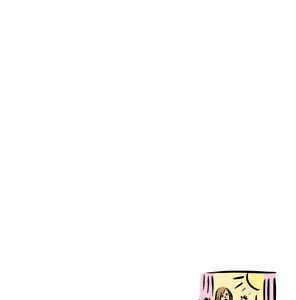
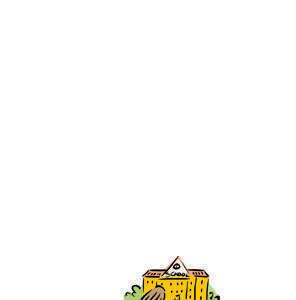
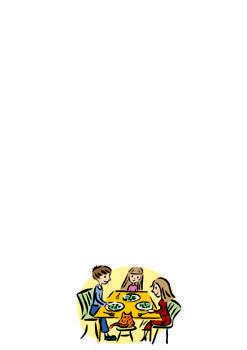
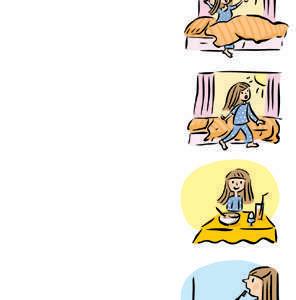


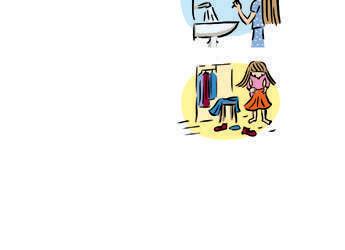

11
Meet Lena – she’s in Vicky and Borys’s group at the summer school. Read about Lena’s daily routine. Say the phrase for each picture.
Hi there. I’m Lena. I come from Bulgaria. Here’s what I do on weekdays in Bulgaria.




I at 6:30 am. I and . I don’t – I just drink orange juice. Then I and . School starts at 8:00 am. I at 1:00 pm and I . I with my sister and my grandparents. After that I . Then I go to ballet classes. I love ballet and I practise every day. My parents come home from work at 7:00 pm. And then we all . I don’t in the evenings. I listen to music. At 10:00 pm I and .

Now listen and check.
12
Model:
13
Talk about Lena’s daily routine. Follow the model.
She wakes up at 6:30 am. She gets up and brushes her teeth.

In pairs, talk about your daily routine. Take turns. Use the model in 11.
Prepositions of time: at , in , on








We use prepositions of time to say when something happens. Now read the examples below. I get up at 7 o’clock. I do my homework in the afternoon. I have English classes on Mondays and Fridays.
at in on at 5 o’clock in the morning on Monday at the weekend in the afternoon on Tuesday morning at noon in the evening on weekdays at night in summer on my birthday at Christmas in April on Christmas Day
14
Model:
Say the correct preposition in each sentence.
I get up early on weekdays.
1. Dad has a nap … Sunday afternoons.
2. Classes finish … 1:00 pm.
3. I do my homework … the afternoon.
Read and listen to the dialogues. Then practise in pairs.
A: Excuse me, have you got the time, please?
B: It’s 12:45.
A: Thank you very much.
B: You’re welcome.
A: What time is it?
B: It’s 7:15.
A: Hurry up, it’s time for school.
A: What time does the match start?
B: It starts at 7:30.
A: Oh, we’ve got plenty of time. Let’s have a snack.
4. My baby sister often wakes up … night.
5. Justin goes jogging … the morning.
6. They visit their grandparents … the weekend.
Ask for the time
What time is it?/What’s the time?
Excuse me, have you got the time, please?
Sorry, can you tell me the time, please?
What time does the film start?
When does the film start?
dinner the talent show the film classes bed the concert
Now make similar dialogues. Replace the times with your ideas and the words in bold with the words and phrases in the box. Act out the dialogues for the class.
2. Talking about my daily routine
Read and listen to the dialogue. Then practise in pairs.
A: What do you do in the morning?
B: Well, I go to school.
A: And what do you do after school?
B: I have lunch and then I do my homework.
It’s half past three. It’s three thirty.
It’s five to seven. It’s six fifty-five.
It’s quarter past eight. It’s eight fifteen.
It’s quarter to one.
It’s twelve forty-five.
Now make similar dialogues. Replace the phrases in bold with your own ideas.
Work in pairs. Choose a role: Student A or Student B. Read the role cards and make a dialogue. Then change roles and make another dialogue. Use the ideas in the box below.

You want to go to the cinema on Sunday at 4:00 pm. Find a classmate who is free on Sunday. Invite him/her to come with you.
I want to …


Do you want to …? What time …?
My favourite part of the day

18
Read Paulo’s homework about his favourite part of the day. When does he do his homework?
My favourite part of the day is the afternoon. I finish school at 1:00 pm and I go home. I have lunch and then I hurry out for my football practice. After that I do my homework. In the late afternoon, I hang out with my friends or chat with them on Viber.

In your notebook, write a similar description of your favourite part of the day. Follow the model.
Answer student A’s questions. Agree to go with Student A. OR

Disagree because you are busy. Invite student A to go to the National History Museum with you on Saturday.
The film starts ... Let’s go … That’s a great idea!
I’m sorry I can’t. I’m busy. Why don’t we go …

Listen and repeat.19
box short open stop sport home shop more most often before piano jogging morning alone
Now look at these words. In your notebook, put them into the correct group. Then listen and check your answers.
go clock horse whole office form

Look at the words and phrases below. In your notebook, match



the
Listen and answer the questions.
1. What news has Mrs Adams got for her group?
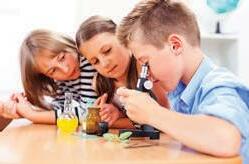
2. Are Vicky and Borys interested?


Now listen again and choose the correct answer.
1. The trip is to a. the British Museum. b. the Natural History Museum. c. the Science Museum.
2. There are about 80 million … on display. a. rocks b. animals c. objects


3. Vicky is not interested in a. rocks and stones. b. dinosaurs. c. plants.
4. Borys’s favourite subject is a. History. b. Science. c. Geography.
5. The museum has got a collection of ... models of dinosaurs. a. medium-sized b. life-sized c. pocket-sized


The Natural History Museum in London is a favourite place for people of all ages. The museum has got a huge collection of about 80 million objects on display. It has got different colour-coded zones. They cover all forms of life on Earth from prehistoric times till now.

More than 300 scientists work there. The Museum is a top UK visitor attraction. Entrance to the museum is free.
Source: http://www.nhm.ac.uk/
Listen to part of another conversation and answer the questions.
1. Do all the students like the museum?

2. Who has got a surprise?
Now read the whole conversation and the sentences below. Say true or false. Correct the false sentences.
Mrs Adams: Borys: Paulo: Alfredo: Mrs Adams: Victoria:
Mrs Adams: Borys: Mrs Adams: Victoria:
How do you find the museum, kids?
It’s great! I like touching the objects. I love doing experiments. I prefer watching videos. The Velociraptor 3D video’s amazing!
What about you, Vicky? Are you bored?
Oh, no, Kate, not at all. It’s absolutely fantastic!
Look, we can make a dinosaur mask. I love drawing. I’m so glad you all like it. There’s something for everybody here. Now I’ve got a surprise for you... Come here quickly. Let me introduce you to T-Rex. It’s only 70 million years old. Are you kidding us?
No, Borys. I’m serious. You can touch its skull. And you can measure its teeth and bones. Brrr, that’s scary. I’m so happy these monsters don’t exist anymore!
1. Borys likes the museum.
2. Paulo doesn’t like doing experiments.
3. Vicky likes drawing.
4. Alfredo likes watching videos.
5. Mrs Adams shows a Velociraptor to the students.
6. The students can’t touch the dinosaur bones.
7. Vicky is sorry she can’t see a living dinosaur.




1. Like/don’t like/hate + -ing
Read the examples. What form of the verb do we use after like , love , and hate ?
I
love like don’t mind don’t like hate
study ing. sleep ing. watch ing TV.
Now check with the rule.
We use verb + -ing after love, like, don’t mind, don’t like, and hate.
7
Work in pairs. Take turns to ask and answer the questions below. Use the phrases in the box as well as your own ideas.
Model: I love playing football.
1. What do you love doing?
2. What do you like doing?
3. What don’t you mind doing?
4. What don’t you like doing?
5. What do you hate doing?
go to school do homework play football watch TV go on school trips visit museums sleep do experiments go to the cinema tidy my room help my parents walk the dog
2. Adverbs of frequency always 100% usually often sometimes never 0 %

Once (one time) a day/a week/a month
Twice (two times) a day/a week/a month
Three times a day/a week/a month
Read the examples and answer the question below.
I am sometimes late for school.
They are never bored.
Alfredo usually watches videos in the evening.
I don’t often watch sport on TV.
Do you often play sports?
Does Vicky usually go to school by bus?
Where do we put adverbs of frequency in the sentence?
Now check with the rules.
Adverbs of frequency go after am/are/is .
Adverbs of frequency go before other verbs .
Make sentences true for you. Use always , usually , often , sometimes , never .
Model:
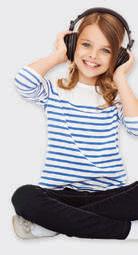
I never go to school by car.
1. I … go to school by car.
2. I am … late for school.
3. I am … happy.
4. I am … hungry at 10:00 pm.
5. I … listen to music in the evening.


6. I … go the cinema.
7. I … go to school by bus.
8. I … speak English outside school/at home.
9. I … go to museums.
In your notebook, put the words in the correct order to make sentences. Then check with your partner.
1. I / my / on / the / bus / always / on / mobile / text .
I always text on my mobile on the bus.
2. usually / watches / the / TV / evening / in / Maria .
3. my / music / are / loud / play / angry / when / always / I / parents .

4. grandma / in / nap / the / my / afternoon / has / never / a .

5. your / homework / you / do / usually / do / when ?
6. they / often / come / me / with / to / cinema / the / don’t .
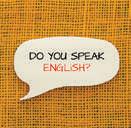
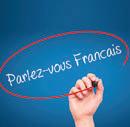

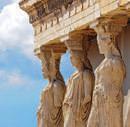




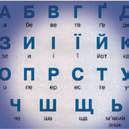

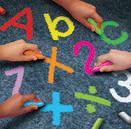




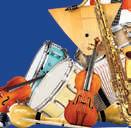
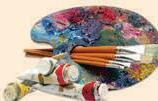

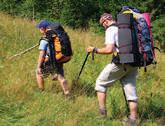






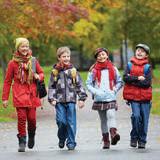
Vicky:
Alfredo: Vicky:
Alfredo: Vicky: Alfredo: Vicky: Alfredo: Vicky:
What do you like doing in your free time?
I love sleeping and I like playing video games.
Really? What about sports? Do you like playing sports?
Yes, I do. I love swimming.
How often do you go swimming?
Four times a week. And I also do karate.
How often do you do karate?


Twice a week.
Wow, you’re sports mad!
Borys: Martha:
Borys: Martha: Borys: Martha: Borys:
What do you like doing in your free time?
I like hanging out with friends. I’m very communicative, you know. Yes, you really are. What about sports?
Do you like playing sports?
I don’t mind playing sports. I sometimes ride my bike. Sometimes? What do you mean? Four or five times a month. I see. You’re not mad about sports.

Now make similar dialogues. Replace the phrases in bold with your own ideas.
Ask and answer about leisure activities
What do you like doing in your free time?
I like/love … /I don’t mind …
Do you like sports/reading?
How often do you …?
15
Work in pairs. Choose a classmate you don’t know very well and interview him/her about his/her free time activities. Write down your classmate’s answers and tell the class about him/her. Change roles.
Read Alfredo’s email to Patrick, his email friend. What doesn’t Alfredo mind doing?
To: patrick_the_great@gmail.com
Subject: Hi again :-)
Hi Patrick,



How are you? What do you like doing in your free time?
In my free time I like listening to music and playing sports. My favourite singer is Drake. My favourite sports are swimming and karate. I also love sleeping and playing video games. I don’t mind walking the dog.
Write soon, Alfredo
Write a similar email to a friend. Follow the model.
The letter U Listen and repeat.
cut student put just usually full study introduce pull lunch computer push umbrella communication pudding
Now look at these words. In your notebook, put them into the correct group. Then listen and check your answers. summer music sugar instrument during plump








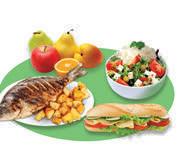










Listen to part of a text and answer the questions.
1. Which meal is an important part of the Christmas celebration?

2 . When do people have Christmas dinner?
Now read the whole text and the questions below. Choose the correct answer.
My favourite holiday is Christmas. In my family, the most important meal is Christmas dinner. It consists of lots of delicious dishes: roast turkey, Brussels sprouts, roast potatoes, and cranberry sauce. There is also stuffing, tiny sausages in bacon, and hot gravy.
The dessert is a Christmas pudding. Nowadays, not many families make it at home but we still do. We prepare it long before Christmas. It has a lot of different ingredients. According to tradition, every member of the family stirs the pudding and makes a secret wish. My mum hides a silver coin in the pudding. It brings good luck to the person who finds it.
1. Christmas dinner consists of
a. turkey, vegetables, sausages, and dessert. b. turkey, vegetables, and dessert.
2. The dessert on Christmas is a. a fruity pudding. b. a chocolate pudding.
3. People make Christmas pudding
a. on Christmas day. b. some time before Christmas.
4. When the family prepares Christmas pudding, its members a. make a secret wish. b. hide a silver coin.




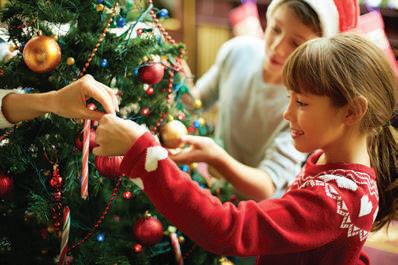
I usually have a sandwich and two apples for breakfast. My Granny always has tea with milk in the afternoon.
We can count some nouns: a banana – three bananas . They are countable nouns .
There are some nouns that we can’t count: water , meat , sugar . They are uncountable nouns .
Some nouns are both countable and uncountable
I like ice cream . Three ice creams , please.
Look at the words below. Copy the table into your notebook and write the words in the correct column. Add two more words to each column.
banana water apple sugar potato sausage bacon butter sandwich cranberry vegetable chocolate
Countable Uncountable



Read the examples and answer the questions.
There is some butter in the fridge.There are eggs
There isn’t any juice in the fridge.There aren’t oranges
Is there any juice? Are there oranges?
When do we use some ? When do we use any ?
We use some in positive sentences with uncountable and plural countable nouns.
We use any in questions and negative sentences with uncountable and plural countable nouns.
We use some in questions when we ask for or offer something.
PRACTICE
8
Model:
Say some or any to complete each sentence.
When you feel hungry, have some vegetables or some fruit between meals.
1. There is … cheese but there isn’t … tomato sauce.
2. Is there … mineral water in the fridge?
3. My mother is on a diet. She doesn’t eat … sweets.
4. My brother can’t eat … fried food.
5. A: Can I have … biscuits, please?
B: Sorry, there aren’t … biscuits, but there are … nuts.
6. Let’s go to the supermarket. We need … meat and … carrots.
3. Much , many and a lot of/lots of
Read and compare the examples. Then answer the questions.
She eats a lot of vegetables and she drinks a lot of water. Do you eat much chocolate? Are there many vegetarians in your class? There isn’t much tea in my cup! I don’t eat many vegetables.
When do we use a lot of ? When do we use many ?
When do we use much ?
9
Now check with the rules.
In informal English, we normally use a lot of /lots of in positive sentences with both uncountable and plural countable nouns. We use many with plural countable nouns in questions and negatives. We use much with uncountable nouns in questions and negatives.
a lot of = lots of



In your notebook, match the two parts of the sentences.
1. Ukrainians eat 2. Do you drink 3. There isn’t
4. Do you eat 5. Do you send
6. My sister drinks 7. They don’t serve
a. much food in the fridge. b. a lot of water every day. c. a lot of meat. d. much orange juice? e. much junk food when you go out with friends? f. many healthy drinks in the school café. g. many Christmas cards?



































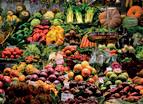



14 Look at the pictures of Exercise 11 again and answer the questions.
1. Where do the Wilsons buy their food for breakfast?
2. Where does Alfredo buy the food for his sandwich?
3. Where does Lena buy the food for her dessert?
Now work in pairs. Ask and answer in turns.
Model:
I usually buy milk in a supermarket.
Where do you usually buy: milk? yoghurt? bread? watermelons? jeans? sausage?
3. Ordinal numbers
15
Listen and repeat.
1st first 2nd second 3rd third 4th fourth 5th fifth
… 8th eighth 9th ninth 10th tenth
16 Model:
11th eleventh 12th twelfth 13th thirteenth 14th fourteenth
… 19th nineteenth 20th twentieth
21st twenty-first 22nd twenty-second 23rd twenty-third 24th twenty-fourth
30th thirtieth 40th fortieth
31st thirty-first 32nd thirty-second
Say the dates and the years.
1 April – the first of April / April the first
Model: 1996 – nineteen ninety-six 2003 – two thousand and three
12 August 22 October 5 May 14.09 16.08 23.11 05.04 8.06 2001 1963 1912 1876 1396 1996 2011 2020
Now listen, check and repeat.
17
In pairs, ask and answer the questions below.
• When do we celebrate Christmas?
• When do we celebrate St Valentine’s Day?
You can write 12 August or 12th August.
• When do we celebrate Liberation Day?
• When is your birthday?
18
Read and listen to the dialogues.
Practise in pairs.
• Can I help you?
• What would you like to get / buy / see?
• I’d like / I would like …
• How much is it?
• How much does it cost?
• You’re welcome!
• Have a nice day!
Shop assistant: Customer: Shop assistant: Customer: Shop assistant:
Good morning. Can I help you?
I’d like a box of 6 muffins, please. Here you are. How much are they?
That’s 2 pounds, please.
Shop assistant: Can I help you?
Customer: Yes, please.
Shop assistant: What would you like to buy?
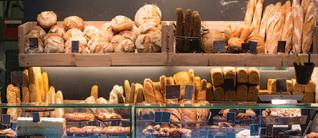
Customer: I’d like new jeans.
Shop assistant: Blue or black?
Customer: Blue, please. Shop assistant: Here you are.
Customer: I like them. How much are they?
Shop assistant: 100 pounds. How would you like to pay?
Customer: Cash, please.
Shop assistant: Here you are.
Customer: OK. Thank you very much!
Shop assistant: You’re welcome.
Customer:
Shop assistant:
Customer: Shop assistant:
Customer: Shop assistant:
Hello. Where can I find Cheddar cheese, please?
In the dairy section.

Where is it?
It’s at the back of the shop on the right.
Thank you very much.
You’re welcome.
Shop assistant: Good morning! Can I help you?
Customer: Yes, please. I’d like a new mobile.
Shop assistant: What brand would you like?
Customer: Samsung, I think. Shop assistant: Here you are.
Customer: Yes, I like it. How much does it cost?
Shop assistant: It’s 53 dollars.
Customer: I’d like to pay with a credit card, is it OK?
Shop assistant: Yes, of course.
Customer: Thank you!
Shop assistant: You’re welcome! Have a nice day!
Now make similar dialogues. Replace the phrases in bold with your own ideas.
Look
the photos.
with the
New Year’s Eve Christmas Valentine’s Day
Read and listen to five dialogues. Match them with the celebrations in 19. Practise the dialogues in pairs.
1. A: Many happy returns!
B: Happy Birthday!

C: Thank you all!
2. A: Happy New Year!

B: Happy New Year to you too!
3. A: Happy Valentine’s Day!

B: Happy Valentine’s Day to you, thank you!
Work in pairs. Interview your partner about his/her birthday celebration and write down his/her answers. Change roles.


4. A: Happy Easter!
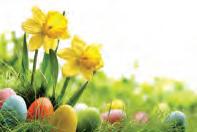
B: Same to you!
5. A: Merry Christmas, everyone!
B: Merry Christmas!
When’s your birthday?
Where do you usually celebrate your birthday? (at home/at a party club/ at a restaurant …)

Who do you invite? (friends, relatives)
Do you get any presents? If so, what presents do you usually receive?


What do you do on your birthday?
What food and drinks do you have?
Now report to the class.
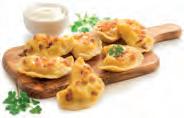

again
repeat.
the name for the most common sound

a weak, unstressed sound.

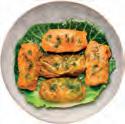

this sound


correct
English
of the schwa sound
natural.

24. Read the text and write the headings over the paragraphs.

This is Pierre’s grandfather. He’s 75, but he looks about 65. He shares his secrets of a healthy life.
I usually get up at 6 o’clock. I always drink a glass of water. Then I do yoga, drink a cup of tea and work in the garden. At 9:00 I have a snack of fruit or nuts. At lunch I have soup and salad. In the afternoon, I have a nap. In the evening, I have vegetables and yoghurt with bread.
I eat a lot of vegetarian food. I eat meat once a week. I drink a lot of water every day. I never drink coffee. I go to bed early and sleep for 8 hours. I often say to my grandson: Your food is your medicine.
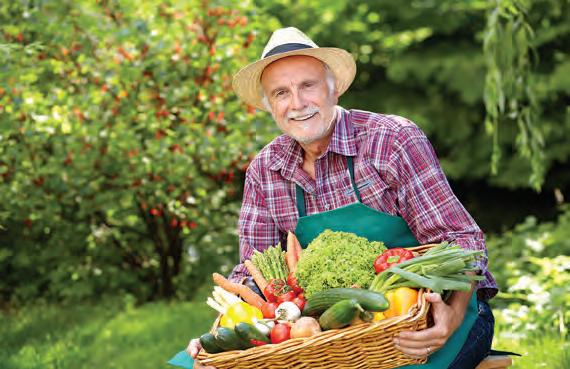
25. Read the text again and answer the questions.
1. What time does Pierre’s grandfather get up?
2. What does he do in the morning?
3. What does he eat at 9:00?
4. What does he do in the afternoon?
5. What does he drink in the evening?
6. What does he say to his grandson?

PREPOSITIONS OF TIME in the morning/afternoon/evening in (the) summer at 9:00/at noon at the weekend/at weekends on Sunday/weekdays
26. In pairs, talk about your daily routine. Use never, sometimes, often, usually, always and the ideas in the box.
A: How often do you get up early?
B: I sometimes get up early. What about you?
A: Oh, I always get up early, even at weekends. get up earlywalk in the parkeat meat eat fisheat vegetableseat fruit do a sportgo to bed latetidy your room
Lifestyle = Your habits and the things you usually do.
1. I watch TV for one hour or more every day.
2. I play computer games for one hour or more a day.
3. I often eat fast food.
4. I usually eat sweets and junk food.
5. I eat fruit and vegetables every day.
6. I usually eat healthy food.
7. I go to bed early on weekdays.
8. I drink a lot of water (2 litres a day).
9. I usually walk to school.
10. I often play a sport.
Yes No
Yes No Yes No
Yes No Yes No Yes No Yes No Yes No Yes No Yes No
No1,2,3,4–1point,5,6,7,8,9,10–0points
Yes1,2,3,4–0points,5,6,7,8,9,10–1point
7–10 points You have got a healthy lifestyle.
4–6 points You need to change some habits.
1–3 points You need to change your habits urgently.
Compare your score with a partner. Share your healthy habits with the class.
I never eat fast food.
I eat fruit every day.



28. Write about the healthy lifestyle of a person you know. How does he/she live? Use the Writing File on p. 124 as a model.

27. Complete the questionnaire. Have you got a healthy lifestyle?
1
Listen to the interview. What is the best title? Write the correct answer in your notebook.
a. Food and Tennis b. Food and Cooking c. Tennis and Cooking
2
Listen again and write the correct answers in your notebook.
1. The Williams’ favourite dish is
а. Mom’s chicken with rice and gravy. b. Mom’s chicken with potatoes and gravy. c. Mom’s chicken with stuffing.
2. Serena … cooking.
a. likes b. doesn’t mind c. doesn’t like
3
3. Serena’s roast chicken recipe is with

a. garlic and rice. b. butter and gravy. c. garlic and butter.
4. Serena adds

a. some salt and pepper. b. some water. c. some tomatoes.
5p.
Read the article. In your notebook, answer the question: What holiday is the text about?
A. In the United States, people celebrate Thanksgiving Day on the fourth Thursday of November. We can trace this historic American tradition back to the year 1863.

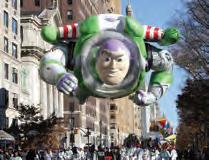
B. Thanksgiving Day is traditionally a day for families and friends. People get together for a special meal. The meal often includes a turkey, stuffing, potatoes, cranberry sauce, gravy, pumpkin pie, and vegetables. Thanksgiving Day is a time for lots of people to give thanks for what they have.
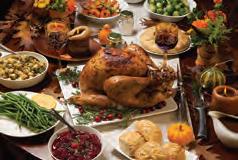
4
C. In some cities and towns, there are Thanksgiving Day parades. People gather in the streets to watch the festive floats, marching bands and giant balloons. At the end of the Parade, Santa Claus appears and this is the start of the Christmas season.
Source: http://www.timeanddate.com
Read the text again. In your notebook, write true or false. Correct the false sentences.
1. American people celebrate Thanksgiving on the fourth Tuesday of November.
2. It’s a modern American tradition.
3. People have a special meal.
4. The meal includes chicken, gravy and pumpkin pie.
5. On Thanksgiving Day, lots of people give thanks for what they have.
6. Santa Claus appears at the beginning of the Thanksgiving Day Parade.
Work in pairs. Interview your partner about a family member or a friend. Use the questions below. Copy the chart into your notebook. Take notes.
• What is his/her name?
• How old is he/she?
• What does he/she look like?
• What does he/she like?
• What doesn’t he/she like?
Go to page 42 in Workbook 1 to do the Grammar and Vocabulary sections.
6p.
Now
I know how to:
I can:
describe my daily routine. ask and tell the time. express agreement and disagreement. talk about likes and dislikes. talk about my school subjects. wish a good holiday. talk about my eating habits. describe traditions and celebrations.
use the Present Simple. use phrases with have express an amount of something.
2
Work in groups of four: A, B, C and D. Each group reads its paragraph. Then it answers the questions and reports to the class.
1
Listen and find the countries on the map.



England is the largest country in the United Kingdom. Its capital is London. People sometimes wrongly use it as a synonym of the whole United Kingdom. This is not only incorrect but can cause offence to people from other parts of the UK. England is famous for lots of things – its castles and historic houses, football stars, pop stars, universities, food, pubs and so on. 23rd April, St George’s Day, is the national day of England. Some people wear a red rose on St George’s Day. The rose is the national emblem of England. England’s national animal is the Lion.

Wales (Cymru /ˈkʌmri/ in Welsh) is a mountainous country on the western side of the UK. Its capital is Cardiff. Wales is known for its rich culture and male voice choirs. The national game of Wales is rugby. 1st March, St David’s Day, is the national day of Wales. On this day, Welsh people wear daffodils or leeks. These plants are the national emblems of Wales. The national animal of Wales is the Red Dragon. It is on the Welsh flag.
What do you know about the UK?
Scotland is a mountainous country in the north of the UK. It also has lots of islands all around its coast. Its capital is Edinburgh /ˈedɪnˈb(ə)rə/. Scotland is famous for its fresh water lochs /lɒks/ (lakes). The most famous is Loch Ness where, people say, the mysterious monster Nessy lives. Scotland is also famous for its kilts, medieval castles, as well as for the poetry and songs of Robert Burns.
30th November, St Andrew’s Day, is the national day of Scotland. On this day, people wear a thistle – the national flower of Scotland. The national animal is the Unicorn.

Verse 1:
London’s the capital everyone knows, London’s so famous that everyone goes To ride boats on the Thames, the Eye in the sky, And watch as all the Queen’s soldiers march by.
Verse 2:
But London’s not England; there’s lots more to do: See stone circles at Stonehenge and Avebury, too. There’s Salisbury Cathedral, the Minster at York. The Lake District’s pretty – a great place for a walk.
Chorus:
On a trip to the UK you can see many sights, Check on the Internet and book your flights. Visit Ireland, Scotland, England and Wales: The journey will leave you with many fine tales.
Verse 3:
Northern Ireland is situated in the northeast of the island of Ireland. Its capital is Belfast. Northern Ireland is famous for its musical and artistic traditions. A lot of famous actors, musicians and writers such as C.S. Lewis, the author of ‘Chronicles of Narnia’, were born in Northern Ireland. Northern Ireland is also known for its sports, especially golf and fishing.
17th March, St Patrick’s Day, is the national day of Northern Ireland and the Republic of Ireland. On this day, Irish people wear shamrocks. The shamrock is the national emblem of both Northern Ireland and the Republic of Ireland.
1. What is the country’s capital?
2. What is the country famous for?
3. When is its national holiday?
4. What is the country’s national emblem?

5. What is the country’s national animal?
Wales is a country of castles and sheep, Its big mountain Snowdon is really quite steep! You can sit on the beaches and surf in the sea Or watch a good game of exciting rugby.
Chorus:
On a trip to the UK you can see many sights, Check on the Internet and book your flights. Visit Ireland, Scotland, England and Wales: The journey will leave you with many fine tales.
Verse 4:
Up in the north Scotland’s mountains are high, And if you want luck, there’s heather to buy. Its islands are many, its sea’s rough and cold. But Scotsmen wear kilts like their fathers of old.
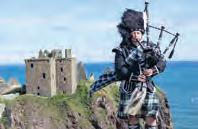
Verse 5:
Northern Ireland lies over the cold Irish Sea, There’s dancing and singing and fine poetry. There are villages and farms, green fields and rain; For the warmth of the people you’ll go back again.

Chorus:
On a trip to the UK you can see many sights, Check on the Internet and book your flights. Visit Ireland, Scotland, England and Wales: The journey will leave you with many fine tales.
do you live – in a city, a town
interesting sights
tourists
Vicky, Borys, and their classmates are taking the London City Tour. Listen to their tour guide. Choose the correct answer.
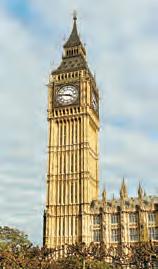





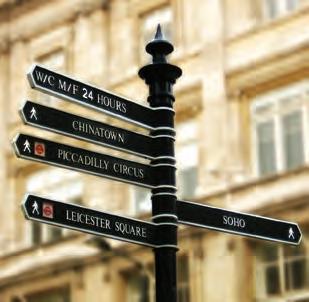
Vicky, Borys, and their classmates are
on a boat.
on a train.
on a bus.
Listen again. Point and name the sights in the order Vicky and Borys see them.

c. Houses of Parliamenta. Buckingham Palace


Listen to part of a conversation and answer the questions.
1. What are Vicky, Borys and Justin doing?
2. Who joins them?


Now read the whole conversation and the sentences below. Say true or false. Correct the false sentences.
Mrs Wilson: Justin:
Mrs Wilson: Borys: Mrs Wilson: Vicky: Mrs Wilson: Borys: Vicky: Mrs Wilson: Borys: Vicky: Mrs Wilson:







Good evening, everybody. What are you doing?
Hi, mum. Vicky and Borys are showing me their photos of London.
That’s interesting. Can I have a look?






Sure, Aunt Anna.
Oh, this is the lake in Hyde Park.
Yes, that’s right. We’re feeding the ducks. And where’s that?

Let me see. Aha. We’re relaxing and eating ice cream in front of the British Museum.

Look at this photo, Aunt Anna. Can you guess the place? Hm, aren’t you standing in front of Buckingham Palace?
Yes, we’re watching the Changing the Guard ceremony.
Does the Queen live there all the time?
No, she doesn’t. Look, the Queen’s flag’s flying above Buckingham Palace. That means the Queen’s there.


1. Aunt Anna isn’t looking at the photos of London.
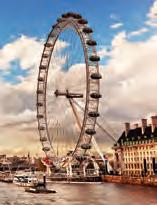
2. There is a lake in Hyde Park.
3. Vicky and Borys are playing with the ducks in Hyde Park.
4. Vicky and Borys are eating sandwiches in front of the British Museum.

5. Vicky and Borys are watching Changing the Guard at Buckingham Palace.
6. When the Queen’s flag is flying above Buckingham Palace, the Queen is in the building.

POsitive
I ’m not (am not)
You
We They ’re (are)
I ’m (am) read ing
He She It ’s (is)
yes / nO QuestiOns
Am I play ing ?
Are you we they Is he she it
Wh - QuestiOns
You
We They aren’t (are not)
He
She It isn’t (is not)
shOrt ansWers
sleep ing .
What Where
am I read ing ? play ing ? are you we they is he she it
Use
Yes ,
I am . No ,

I ’m not . you we they are . you we they aren’t . he she it is he she it isn’t
verB + inG
sleep play + ing go
sleep ing play ing go ing
Read the examples and answer the question.
Quiet! I’m listening to the tour guide. Look! They’re waiting for the bus.
When do we use the Present Continuous?
Now check with the rule.
mak e chang e + ing tak e
sto pp ing ru nn ing cu tt ing
mak ing chang ing tak ing stop + p + ing run + n + ing cut + t + ing
We use the Present Continuous to talk about activities happening at the moment.
Copy the table into your notebook. Add -ing and put the verbs into the correct column.
read run make play go get shop take write jump have sit
just add -ing remove e double the last consonant reading making running


In your notebook, complete the sentences with the correct form of the verbs in brackets. Use the Present Continuous.
My brother Borys and I 1. are standing (stand) in the queue now. We 2. … (wait) patiently because we want to ride on the London Eye. We 3. … (enter) the capsule now. 4. The wheel … (turn) very slowly. We 5. … (go) up now. Wow! It’s amazing. My brother 6. (take) lots of photos. I 7. (not take) any photos. I 8. … (enjoy) the view.
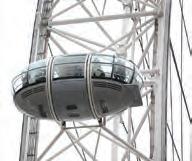
Look and compare the examples.
Uncle John always watches the news at 8:00 pm. He doesn’t watch any films at this time. It’s 8:10 now. He’s watching the news. He isn’t watching a film.
We study English at school. I’m busy now. I’m studying for the English test.
Answer the questions.
When do we use the Present Simple? When do we use the Present Continuous?
Now check with the rules.
We use the Present Simple to talk about habits. We use the Present Continuous to talk about activities happening at the moment.
Work in pairs. In the sentences below, say the correct tense, the Present Simple or the Present Continuous, of the verbs in bold.
1. make
Vicky’s mum usually makes a cake for her birthday. She is making a birthday cake now.
4. meet
I usually … my friends on Friday afternoon.
The Wilsons are at the airport. They … their guests.
2. change
The guards always … at 11:30 am. Look! The guards … .
3. give Anna never … her mobile phone number to strangers. In this photo. Tom … Anna a present.
3. Adverbs of manner
Adjectives and adverbs
5. run
We never … along the school corridors. Why … you …? We aren’t late.
6. go
We always … on holiday in August. Hi, Borys! Where … you …?
Read the examples and compare the words in bold. Then answer the questions.
Vicky is patient. Vicky and Borys are waiting patiently.
What do adjectives describe? What do adverbs describe?
Now check with the rules.
Adjectives describe a noun (a person or a thing).
9 PRACTICE
Adverbs describe a verb.
adJectiveadverB slow bad careful angry gentle
slowly badly careful ly angri ly gently
BUT!
adJectiveadverB good fast hard late


well fast hard late
• For adjectives that end in -l , we add -ly .
• For adjectives that end in -y , we remove the -y and add -ily .
• For adjectives that end in a consonant + le , we remove the -e and add -y.
Model:
In your notebook, form adverbs from the adjectives below. happy happily gentle late good quick
hard quiet beautiful fast


























Look at the examples. Match them with the pictures.
Look to the left/right.
Go up the street.
Move along the path.
Go past the museum.
Say the correct preposition in each sentence.
1. The tourists are walking … the street.
2. On my way to school, I go … the post office.
3. Look … the left. Isn’t that Sara?
4. Don’t turn right, go … the street.
Do you know how to get to ...?
I’m looking for ...
Is this the way to ...?



Read and listen to the dialogues. Then practise in pairs.
A: Excuse me, do you know how to get to the theatre?
B: Sorry, I don’t know.
A: Thanks anyway.
B: You’re welcome.
A: Can you tell me the way to the museum, please?
B: Go straight ahead. The museum is on the left
A: Thank you very much.
B: Not at all.
A: Excuse me, is this the way to the stadium?
B: Yes. Turn right at the traffic lights. It’s just around the corner
A: Thanks a lot.
B: No problem.
A: Excuse me, I’m looking for the post office.
B: You’re going the wrong way. Go back to the square and then ask again.
А: Thank you.
B: It’s OK.
Can you tell me the way to ...?
Give directions
Take this street. It’s this way.
Go straight ahead. Go back and then ask again.
Turn right/left.
It’s on the left/right. It’s on/around the corner.
Accept someone’s thanks
You’re welcome. Not at all.
at
No problem. It’s OK/all right.
Now make similar dialogues. Replace the phrases in bold with the phrases on the right. Act out the dialogues for the class.
Work in pairs. Choose a role: Student A or Student B. Read the role cards and make a dialogue. Then change roles and make another dialogue.




Imagine you are a tourist in this city. Look at the map. You are standing in front of the train station. Find a place where you want to go. Ask Student B (a person in the street) how to get there.
Imagine you live in this city. Give directions to Student A (a tourist). Use the map.



Read Martha’s homework about her hometown. Why is August the best time to visit Santander?
I live in Santander. It is an old city in Spain. The best way to see Santander is on foot. You can start at the big square in the centre and visit the old cathedral and the palace. The best time to come to Santander is summer. There is a music and dance festival in August.
In your notebook, write a similar description of your hometown. Follow the model. The phrases in the boxes will help you. Add your own ideas.



the capital of Ukraine a small/pretty town a peaceful/small village a mountain/seaside resort


Events a folk dance festival a light show a town/village fair




Sights an old/a small square an ancient fortress a town/history museum mineral springs







Listen and repeat.19
s k city clock centre coach cinema cupboard centimetre crossing celebration cathedral





Now look at these words. In your notebook, put them into the correct group. Then listen and check your answers. corner celebrate come century car cereal


and choose the correct answer.
What is Vicky so happy about?
A new bag.
again and




What is the book about?




What is Jessica like?
A meeting
Who signed Vicky’s book?
Jessica Watson is Australian. She was born on 18 May 1993. When she was sixteen, Jessica sailed around the world solo, non-stop and unassisted. This means that she was alone on her boat, she didn’t stop anywhere and nobody helped her.
Jessica started sailing when she was eight. Her family lived on a boat for five years. Jessica’s mum loved reading adventure books to her children. One of these books inspired Jessica. When she was only twelve, she decided to sail around the world.

Jessica departed from Sydney on 18 October, 2009. She sailed her pink ten-metre boat called Ella’s Pink Lady. Jessica returned to Sydney 210 days later, three days before her seventeenth birthday. It was an amazing journey!


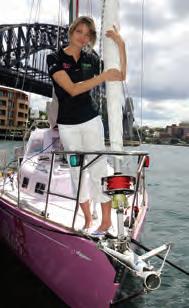
to part of a text and answer the
Where does Jessica come from?
How old was Jessica when she started sailing?



When did Jessica decide to sail around the world?
Where did Jessica’s family live for five

What did Jessica’s mum love


When did Jessica start her journey?
What was Jessica’s boat called?


When did she return to Sydney?
How many days was she alone

her boat?
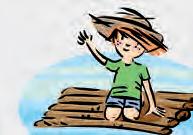
I He She was at school yesterday .
We You They were yes / nO QuestiOns
Was I he she at school yesterday? Were we you they
Wh QuestiOns
Where was I he she yesterday ? were we you they
Yes ,
Make sentences with was or were .
Model:
Maria’s story was interesting.
You … ten last year.


… you alone on the boat?
neGative
I He She wasn’t (was not) at school yesterday . We You They weren’t (were not)
I he she was . No ,
I he she wasn’t . we you they were . we you they weren’t .
Answer the questions.
When do we use was ? When do we use were ?
Now check with the rules.
We use was with I /she /he /it . We use were with you /we /they .
Jessica … really tired after the end of her journey.
A: … you at home yesterday evening? B: Yes, I ... .
Bob and Ben … at the sailing club at the weekend.
All my classmates … at school yesterday.
week/month/summer/year
minutes/five days/two
2011
o’clock
the sentences with past time expressions. Make them true for you.
Model:
was really tired yesterday evening/ last week/two weeks ago.
English books were in my bag … .
was in bed
was at a birthday party
was on holiday
was in grade 1
at school
Verbs that add -ed in the Past Simple are regular
POsitive
You He She We They
played football yesterday
I you he she we they
/ nO QuestiOns
You He She We They
neGative

(did not) play football yesterday .
shOrt ansWers
did .
play football?
,
When Where did
- QuestiOns
I you he she we they
play football?
you he she we they
, didn’t .
There are three different ways to pronounce the -ed ending of regular verbs in the Past Simple: /ɪd/, /t/ or /d/. Go to p. 83 in the Student’s Book and read about the correct pronunciation of -ed .
Answer the questions.
How do we form negative sentences? How do we form questions?
Now check with the rules.
We use didn’t + the base form of the verb in negative sentences. We use did + the base form of the verb in questions.
base form of the verb = verb without to
verB + ed ask + ed ask ed like + ed like d stud y + ed BUT! pl ay + ed
stud ied pl ayed jog + ed jo gg ed


In your notebook, complete the sentences with the correct form of the verbs in bold. Use the Past Simple.
1. open It was very hot in the room so I opened the window.
2. move They ... to Australia last year.
3. not listen We ... to the story carefully.
4. enjoy My friends ... the adventure film.
5. wash, not brush My little brother ... his face but he ... his teeth. 6. wait Jessica’s parents … for her in Sydney.
Read about two teenagers who did some extraordinary things. Say the correct form of the verbs in brackets. Use the Past Simple.
Jordan Romero loves climbing mountains. He 1. ... (reach) the top of Mount Everest when he 2. ... (be) only thirteen. To prepare for this, he 3. ... (climb) six mountains on different continents. Not bad for a 13-year old!


Fraser Doherty loves his grandmother’s jam. He 4. ... (ask) his grandma how to make it. Fraser 5. ... (start) his jam business when he 6. ... (be) fourteen. At sixteen, he already 7. ... (work) on his jam empire full time.
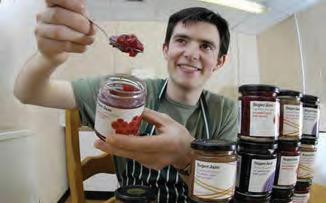
no one
Read the examples and answer the questions.

There’s somebody/someone at the door. Speak louder! I can’t hear anything! Did anybody/anyone help her? Nobody helped her.
We use something/somebody/someone in questions to ask for things or to make a request.
Say the correct indefinite pronoun to complete each sentence.
The fridge is empty. We need to buy something for dinner.
1. Hello, is … there?
What pronouns do we use for people?
What pronouns do we use for things? What kind of verb do we use with nobody/nothing – a positive or a negative one?
Now check with the rules.
We use somebody/anybody/nobody for people.
We use something/anything/nothing for things.
We use a positive verb with nobody , no one and nothing .







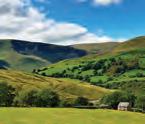

2. The room is empty. There’s … inside.


3. There is ... under the bed. Can you take it out, please?
4. A: Does .... here speak French?


B: Sorry, .... speaks French.
It’s dark here. I can’t see ... .
This is a boring place. There’s .... to do.

Why are you so sad? Please, say ... .
I’m sorry, there is ... I can do to help you.
Read the text. Say the correct word for each picture. Remember – some of the words are plural!
Jack Highway is a famous traveller. When he was sixteen, he decided to visit all the of the world. Jack started from North America. He crossed it from to on a bike. On his way he saw lots of green , high , beautiful and amazing . At twenty-five, Jack was a teacher on a small in the Pacific
The school was in a big tent on the . At thirty, Jack crossed the Sahara on a camel. When he was in Asia, he lived in a . Now Jack is in Europe. He lives in a big country in the centre of Europe. His house is in the of daffodils. Can you guess the name of the country?
Now listen and check.
My parents go to work by car. I go to school on foot. Jack crossed the island on a bike. She draws her paintings with a pencil. I saw the tiger with my own eyes.
by (+ vehicle) on (+ an animal or feet)
with (+ means or an instrument)
by bus on a horse with a pen by train on a camel with a pencil by plane on a bike with a key by underground on foot with my own ears
14
Model:
Say the correct preposition in each sentence.
I like travelling by car.
1. Maria writes … a pen.

2. We went on holiday … plane.
3. In India, people usually travel … train, … bike or … foot.
4. I can’t open the door … this key.
5. A lot of people in the capital travel … underground.
6. In the past, people often travelled … ship.
7. I crossed the whole town … foot.


1. Talking about my birthday and my birthplace
15
Read and listen to the dialogue. Practise in pairs.
A: When were you born?
B: I was born on 23 September, 2003.
A: Where were you born?
B: I was born in Varna
Make similar dialogues. Give true answers.
16 Work in pairs. Choose a role: Student A or Student B. Read the role cards and make a dialogue. Then change roles and make another dialogue. Use the ideas in the box below.

You are a journalist. Interview the famous traveller Student B about his/her journey. Find the traveller’s route on the map. Prepare your questions in advance. The questions in the box can help you.
Imagine you are a famous traveller. You are back from a trip to a tropical island. Your route is on the map. Answer the interviewer’s questions about your adventures.




• How did you go to …?
• Where did you start your journey (from)?
• What did you decide to do when ...?
• Were there any people/animals?
• What did they look like? What were they like? (friendly/unfriendly, shy)
17
Read Borys’s homework about a school trip. What did the students do?
Last month, my class went on a day trip to Bukovel. It is a big ski resort in the Ukrainian Carpathian. The trip started at 7:00 am. We travelled by coach. We visited «Hutsul Land Park». We fed wild animals and swung on the biggest swing in Ukraine. It was cool. We had a great time.
In your notebook, write about a school trip. Follow the model.
• How did you cross the desert/the river/ the lake? (on foot, on a camel, by boat)
• What colour was/were …?



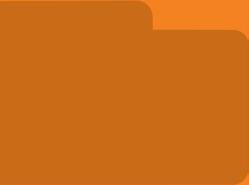


• Was it hot/cold …?
• Were you afraid of …?
Past Simple ending -ed Listen and repeat.18
t d ɪd washedtravelledrepeated crossedsaileddeparted watchedsignedwaited askedanswereddecided checkedinspired started



Now look at these verbs. In your notebook, put them into the correct group. Then listen and check your answers. laughed looked needed arrived planned wanted



Work in groups of three.
Imagine that you’ve got a time machine. It can take you back in time. Answer the questions below.

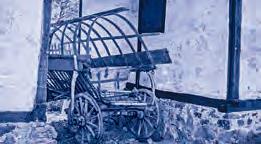
How many years back do you want to go?
• 100 years • 1,000 years • 1,000,000 years Where do you want to go? What do you want to do?





Read the sentences and match them with the pictures. Try to guess the meaning of the words and phrases in bold.







a. I love getting up early and watching the sea at dawn.
There are a lot of lambs on the farm in spring.
My parents were born in the 20th century d. Lemon tart is my favourite dessert.


I play the fiddle in a folk band.

f. A: Wow, you’ve got a great suntan! Were you at the beach last weekend? B: No, I wasn’t. I caught the sun when I went for a walk in the mountains.





Listen and choose the correct answer.
• Last year, Alice and Justin went to

a beach.
a zoo.
a farm.
5 6
Now listen again and say true or false. Correct the false sentences.

1. Only Alice had a suntan.

2. Alice and Justin relaxed on the farm.
3. They woke up at 10:00 am.
4. Alice enjoyed her stay on the farm.
Justin fed the horses on the farm.
Read the statements below. Then listen to part of a text. Which statements are true?
1. a. Alice and Justin spent seven weeks on the farm.
Alice and Justin spent seven days on the farm.
2. a. The people on the farm did everything by hand.
The people on the farm made only bread by hand.
Now read the whole text and answer the questions below.
My brother Justin and I spent a week on a 19 th century farm together with eight other boys and girls. For seven days, we lived and worked with the Jones family on their farm. We wore traditional 19th-century clothes and did everything by hand. Mr Jones and the boys looked after the animals. The girls helped Mrs Jones in the kitchen. She taught us how to make bread.
1. Who did the children stay with?
2. What kind of clothes did everybody wear?
What did the boys do?
What did the girls do?
In the evening, Mr Jones played the fiddle and Mrs Jones sang traditional songs. We learned some traditional folk dances.
On Sunday, we went to the market. We sold all the eggs and homemade cheese and we bought some strawberries. In the evening, Mrs Jones made strawberry tart. We ate it with cream! Delicious!
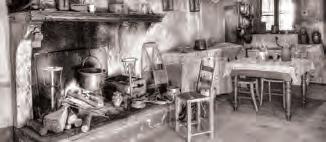
What did the Jones do in the evenings?
Where did everybody go on Sunday?
What did they sell?
What did they buy?
The Past Simple: irregular verbs
Verbs that have special forms in the Past Simple are irregular .
I You He She We They
got up early yesterday .
neGative I You He She We They

didn’t (did not) get up early yesterday .
Did
I you he she we they
yes / nO QuestiOns
get up early yesterday ?

shOrt ansWers
When Where did
I you he she we they
meet have Vicky? breakfast?
How do we form negative sentences? How do we form questions?
Now check with the rules.
Yes, I you he she we they
did. No, didn’t
To form negative sentences, we use didn’t + the base form of the verb.
To form questions, we use did + the base form of the verb.
Copy the verbs below into your notebook. Go to p. 156 in your Student’s Book. Find the Past Simple forms and write them next to the base forms.
go say make take come see give know eat think Now listen, check and repeat.
In your notebook, complete the sentences with the correct form of the verbs in bold. Use the Past Simple.
1. spend
They spent a week in the mountains.
Model:
2. come
All my friends … to my birthday party. 3. give Alice ... me her address in London. 4. know, not know I … the address but I … how to get there. 5. take It … me half an hour to come to school today. 6. sell My grandparents … their country cottage last year. 7. think A long time ago, people … that the Earth was flat. 8. make, eat We … pancakes and … them with chocolate.
In your notebook, finish the sentences. Make them true for you.
1. I went to the dentist two weeks ago.
2. I … half an hour ago.

3. I … yesterday evening.
4. I … last week.
5. I … two weeks ago.
6. I … last month.
7. I … last year.
Read Martha’s ‘to do’ list. In your notebook, write what she did or didn’t do yesterday.
Martha didn’t feed her fish. She bought a present for Alice.
feed my fish buy a present for Alice do my homework meet my friends go to the park
read my new book make pizza teach my brother some English see a new film spend time with Grandpa
Read and listen to the dialogues. Then practise in pairs.
A: Hi! I’m very sorry I’m late.
B: That’s OK. What happened?
A: I overslept. I didn’t hear the alarm clock.
A: Good morning! I’m terribly sorry I’m late.
I missed the bus.
B: Don’t worry. We only started a minute ago.
Make apologies
I’m so/very/extremely/ terribly sorry.
Accept apologies
No worries.
That’s OK. Don’t worry.
Make similar dialogues. Replace the phrases in bold with the phrases in the box. Put the verbs in the Past Simple. Act out the dialogues for the class.
• go to bed late
• miss the train
• do a lot of homework
• get stuck in a traffic jam
• go to the doctor/to the dentist
• lose my keys
Now read and listen to three dialogues. Practise in pairs.
A: Did you watch the talent show last night?
B: No, I didn’t. I did my homework and went to bed.
A: Did you go anywhere last summer?



B: Yes, we went to the seaside.
A: Where did you go?
B: We went to Odesa.
A: Who did you go with?
B: Mum, dad, my brother and another family.
A: What did you do at the weekend?
B: Oh, nothing special.
A: Didn’t you go anywhere?
B: No, I stayed at home and watched TV. What did you do?
A: I had a fantastic time! I played football with my friends.
What did you do ...?
Where did you go ...?
Who did you go with?
Make similar dialogues. Replace the phrases in bold with your ideas. Use the Past Simple. Act out the dialogues for the class.
Work in pairs. Interview your partner about his/her


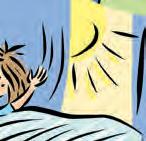
winter/summer holiday

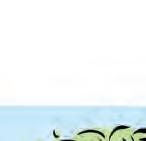
report to the class.

• What did you do?
• Did you go anywhere?
• Where did you go?
• We went …





Describing a past event


down his/her answers.
roles.
• Who did you go with?/Who were you with?
• How did you feel?
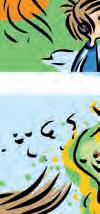
• Nothing special.
• I had a good/great/wonderful time!
• Do you want to go there again?
Read the story. In your notebook, put the pictures in the correct order.

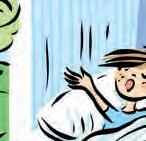


Justin woke up early and went jogging in the park. Suddenly, he saw smoke coming from under a tree. ‘A fire!’ Justin thought. He took out his mobile and called the fire brigade. They arrived very quickly and put out the fire. The firemen told Justin: “Well done, young man! You saved the park!”
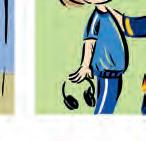
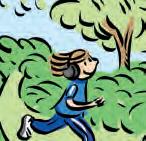


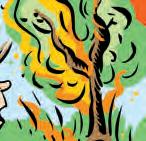
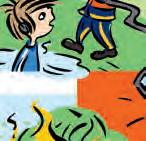

Now cover the text, look at the pictures and tell the story.
Well done, young man!

was very ill

























your notebook,
quiz about
1. The largest city in Scotland is






Edinburgh.
Glasgow.
Ben Nevis is

the highest mountain peak.
a famous poet.
… islands of Scotland are inhabited.
All
Some
The festivals and celebrations are
in spring and summer.
all year round.
The most popular sports are
football and golf.
football and curling.
Now listen and check your answers.
the article.
your notebook,
the question:
is Edinburgh
Edinburgh, the capital of Scotland, is situated on the country’s east coast. It is famous for its beauty, historic sites, festivals and friendly people.


Edinburgh Castle is the most popular historic site. Visitors also love climbing a hill called Arthur’s Seat. From there you can see the whole city and take a selfie that will make your friends jealous. Other popular sites are Holyrood Palace, the Scottish Parliament and Edinburgh Zoo.


August is a great time to visit Edinburgh. For three weeks there are festivals of music, theatre, opera and literature. Another good time is around Hogmanay (New Year’s Eve). You can party, watch the fireworks, listen to Scotland’s famous bagpipes and eat haggis.
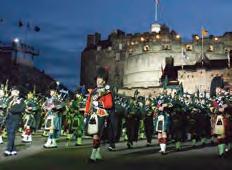






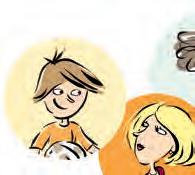
has got








In your notebook, match the phrases with the pictures.
to slip down the stairs
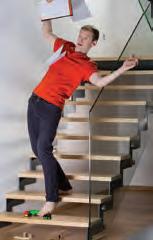
a broken leg
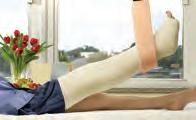
a swollen ankle
Now listen, check and repeat.
Listen to part of another conversation and answer the questions.
1. Who has got a problem?
What does Alice want?
Now read the whole conversation and the sentences below. Say true or false. Correct the false sentences.
Mrs Wilson: Alice: Mrs Wilson: Alice: Mrs Wilson: Alice: Mrs Wilson: Alice: Mrs Wilson: Alice: Mrs Wilson: Alice:












Hello, Alice. What’s the matter? You and Vicky went out just half an hour ago. Hi, Mum. Can you come and pick us up? We’re in front of the Aquarium. Alice, what’s wrong?
Don’t worry, Mum. We’re fine. I just can’t walk very well. What happened?
Well, I slipped down the stairs and now my ankle’s awfully painful. Oh dear! I hope it’s not broken. Now, Alice, can you move it? Let me try. Ouch! It hurts! Can you stand on your foot?



Yes, I can but it hurts a lot. Phew! Maybe it’s just sprained. Stay where you are. I’m coming. Oh, Mum, come quickly! My ankle’s getting swollen.









1. Alice is calling Mrs Wilson.

Alice and Vicky went out an hour ago.
They are in front of the British Museum.
Alice slipped down the stairs.
Vicky can’t walk very well.
Alice can’t stand on her foot.
Mrs Wilson thinks the ankle is broken.
Alice’s ankle is getting swollen.

POsitive I can swim.

I could swim when I was 7.
neGative She can’t drive. She couldn’t drive when she was 16.
QuestiOns
shOrt ansWers
Can you ride a bike? Could you ride a bike when you were 7?
Yes, I can .

No, I can’t .
Read the two groups of examples.
Yes, I could . No, I couldn’t .
A. I can speak English but I can’t speak German.
When I was five, I could ride a bike but I couldn’t read.
B. I can come to your party but my sister can’t because she’s ill.
In the past, the flu could be a very dangerous illness.
Alice couldn’t come to the party because she had a fever.
When do we use can/can’t ?
When do we use could/couldn’t ?
Now check with the rules.
We use can/can’t to say that we know/don’t know how to do things. We use could/couldn’t to say that we knew/didn’t know how to do things.
We use can/can’t to say that something is/isn’t possible.
We use could/couldn’t to say that something was/wasn’t possible.
We use can and could for polite requests.
Can I have a biscuit, please?
Can you come quickly, please?
Could you help me, please?
In your notebook, complete the sentences with can , can’t , could and couldn’t .
1. I can use a computer but my grandmother can’t
2. Jessica … sail a boat when she was only eight.
3. Sorry, I ... do my homework yesterday because I had a headache.
4. I’m sorry, I … walk. My ankle is swollen.
5. … you swim when you were five?
6. My sister … play tennis very well but I … .
7. Maria … speak three languages.
8. There was a concert last night. I … hear the music until midnight.
9. People … use computers 100 years ago.
Work in groups of four. Take turns and say two things you
• can do.
• can’t do.
• could do when you were five.
• couldn’t do when you started school.
• couldn’t do yesterday because you didn’t have time.
Complete the dialogues with the polite requests in the box. Then practise in pairs.
Can you help me with my homework?
Mum, can you turn on the TV, please? Could you open the window, please?
A: …
B: Sure. It’s very hot in here.
A: …
B: Sorry, I can’t, Tom. Your Dad is having a nap.
A:
2. Must ; have to and had to
I must arrive at school at 7:00 am.

I mustn’t be late for my classes.
B: Sure. Just give me a minute to finish mine.
• We use must when we feel that something is important or necessary.
• We use mustn’t when it is FORBIDDEN to do something.
Read the examples and match them with the rules.
a. We have to keep our classroom clean.
b. The doctor says I have to stay in bed.
c. I don’t have to get up early on Sunday.
We use have to when something is a rule.
We use have to when another person says something is necessary.
We use don’t have to when it is NOT necessary to do something.
I You We They have to get up early on Monday.
He She has to
yes / nO QuestiOns
neGative

I You We They don’t have to get up early on Sunday. He She doesn’t
shOrt ansWers
Do I you we they have to get up early on Monday?
Does he she
Wh - QuestiOns
When Where
do I you we they have to get up meet early? Vicky? does he she
Yes, No,
I you we they
do . don’t . he she does . doesn’t
The past tense of both have to and must is had to .
I had to stay in bed last week because I was ill. I didn’t have to do my homework.
A: Did you have to go to the doctor? B: Yes, I did.
11
In your notebook, com plete the sentences with have to/don’t have to, has to/doesn’t have to, had to/didn’t have to.
1. My mother has to get up early because she starts work at 6 o’clock. But she … get up so early at the weekends.
2. My doctor says that I … rest because I’ve got a sprained ankle.
3. Lena … get up early yesterday because it was Sunday.
4. We … be polite when we talk with strangers.
5. You … go to the dentist and check your teeth at least twice a year.
6. My parents are actors. They often … work at the weekends.
7. Last week, I … go on a diet because I had a stomach ache.
I don’t have to / mustn’t
any homework
Lilly doesn’t have to / mustn’t
weekend.
the doctor. She feels better.
You don’t have to / mustn’t throw papers on the floor.
These are schoolbooks. We mustn’t / don’t
This museum is free on Monday.
His ankle is swollen.
to write in them.
mustn’t / don’t have to pay to get in.
doesn’t have to / mustn’t stand on his foot.
your notebook,
shoulder
finger
toe
a wrist
elbow
a stomach
a knee
a neck
listen, check and repeat.




In your notebook, match the words with the pictures.
a stomach ache
a cough
a sore throat
an allergy
a fever
runny nose


Now listen, check and repeat.
and listen to the dialogues.
practise in pairs.
Why weren’t you at school yesterday?
I felt sick. I had a headache.
stomach ache, toothache
How are you now?
I’m getting better. Thanks.
Why aren’t you at school today?
I’ve got a cold. I have to stay in bed.
Have you got a fever?
Yes, and a sore throat
that’s a pity. Get better soon!
COMMUNICATION
Read and listen to the dialogues. Then practise in pairs.
Doctor: Patient: Doctor: Patient: Doctor: Patient: Doctor: Patient: Doctor: Patient:
Good morning. How can I help you today?
Good morning. I feel very tired and weak. Have you got a sore throat?
Yes, I have. And I’ve got a runny nose, too.
I see. Any headache?
Yes, and a terrible stomach ache. When did it start?
Two days ago.
Show me your tongue and say ‘Ahhh’. I think you’re coming down with flu. You must stay in bed and drink a lot of hot tea. Are you allergic to any medicines?
I don’t think so.
Dentist: Patient: Dentist: Patient: Dentist:

Patient: Dentist:
Good afternoon.
What seems to be the problem?
Good afternoon. I’ve got toothache. I think it’s in this tooth.
Can you open your mouth wide, please? Does it hurt when I touch it?
Ow! Yes, it’s very painful.
Yes, you’ve got a cavity in there. You need a filling. Will that be painful?
Just a little bit. Don’t worry.
19
Flu = Influenza is a common illness that gives you a headache, a fever, a sore throat, etc.


Say you need a doctor
I’m ill.
I don’t feel well.
I need a doctor.
I must see a doctor.
Work in pairs. Choose a role: Student A or Student B. Read the role cards and make Dialogue 1. Then change roles and make Dialogue 2.


You are sick. You’ve got the flu. Go to the doctor’s (Student B).
Answer the doctor’s questions about your problem.
You are a doctor. A patient comes to your practice. Interview the patient (Student A). Find out what is wrong with the patient. Tell the patient what to do.

You are a doctor. A patient comes to your practice. Interview the patient (Student B). Find out what is wrong with the patient. Tell the patient what to do.




You are sick. You’ve got a stomach ache. Go to the doctor’s (Student A). Answer the doctor’s questions about your problem.
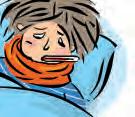

Read Lilly’s story about the last time she was ill. What symptoms did the girl have?
Last week, I wasn’t at school because I had the flu. I felt very weak and tired. I had a runny nose and a sore throat. I also had a headache. I felt terrible. I had to stay in bed and drink hot tea with lemon. I had to take some medicine.
In your notebook, write about the last time you were ill. Or, write about Jack. Look at the picture. Start like this: Jack wasn’t at school yesterday. Follow the model.
and repeat.
wrist easy space nose soup busy salad please
Now look at these words. In your notebook, put them into the correct group. Then listen and check your answers. sick because student phrase
Kew Gardens are the Royal Botanic Gardens in London. They are full of different trees and plants from around the world. Some of the trees are very old. The plants grow in gardens and glasshouses.
Source: http://www.kew.org/

The Tube is another name for the underground railway system in London.

5















Listen to part of another conversation and answer the questions.
1. Where do Vicky and Borys usually go for picnics?

2. Why don’t the Wilsons go for picnics in the mountains?
Now read the whole conversation and answer the questions below.
Justin: Vicky: Borys: Justin: Borys: Justin: Vicky: Alice: Justin: Borys: Vicky: Justin: Alice:




Vicky, Borys, guess where we’re taking you this weekend!
The shopping mall?
The London Dungeon?

No, dear, we’re going for a picnic. Where to? We usually go for picnics in the mountains. There aren’t any mountains near here. But there are lots of beautiful parks and gardens. So where are we going? We’re going to Kew Gardens. It’s a great place. You’ll see a lot of exotic plants in the glasshouses. And there’s a new attraction – the Treetop Walkway. We’ll climb up if you want. It’ll be cool.

Are you sure climbing up trees is cool? Come on, Vicky. Don’t be a chicken! I bet you’ll like it. I think I’ll stay on the ground. My ankle still hurts a bit.
1. What will Borys and Vicky see in the glasshouses?


2. What is the new attraction?
Read the conversation again and find five places you can go to at the weekend. Write them down in your notebook. Add as many other places as you can.
3. Does Vicky like the idea of climbing up trees?



4. What will Alice do? Why?

Don’t be a chicken!
I’ll be 13 next month.
People will drive flying cars in the future. I’m hungry. I’ll have an apple.
When do we use will ?
Now check with the rules.
We use will to talk about future facts and predictions. We use will when we decide to do something at the moment of speaking.
POsitive
I You He She It We They
‘ll be (will be) 12 next month.
I You He She It We They
neGative
won’t be (will not be) 12 next month.

Will
I you he she it we they
yes / nO QuestiOns
When Where will
be 12 next month?
Wh - QuestiOns
I you he she it we they
shOrt ansWers
Yes,
I you he she it we they
will. No, won’t
be live 12? in 2030?






Read and compare the meaning
The Wilsons are having a picnic now. The Wilsons are having a picnic at the weekend.

Now check with the rules.
the examples.
We use the Present Continuous to talk about a. something which is happening at the moment. b. personal arrangements and plans for the future.












In your notebook, match the pictures with the sentences. Which sentences describe actions happening now? Which sentences are about arrangements and plans?
a. I’m sorry, Alice can’t talk right now. She’s sleeping. b. They’re having a snack. c. They’re going hiking this weekend. d. I’m meeting my friends tomorrow after classes. e. I’m seeing the dentist later today. f. We’re waiting for the train.






Listen to an announcement and two messages. In your notebook, match them with the pictures.

• Justin
Justin
phoning Vicky.
• The dolphins will play and swim.
The dolphins will dance and sing.
• Alice’s mum is coming home straight after work.

• Alice’s mum is not coming home straight


work.
are you doing
(do)
I’m
What … the Wilsons



the




They … for a
(open)
very stuffy

• Justin is going for a walk with Vicky.

Justin is going for a walk with Alice.
• The next show will start in 15 minutes.
The next show will start in 50 minutes.
• Alice’s mum is going to the cinema.
Alice’s mum is going to a restaurant.
(get)
go on holiday/tomorrow
go shopping/this
play tennis/this



leave/in an hour
you … the dentist


week?
Yes, I am. At 3 o’clock

I’m so thirsty!
I … you a drink.
The weather and seasons
Work in pairs. In your notebook, write down all the words you know about the weather and seasons.
In your notebook, match the words with the pictures.
fog

a shower
a thunderstorm

a hailstorm

Now listen, check and repeat.
Read the text. Copy the table into your notebook. Complete it with the adjectives describing the seasons. Add as many other adjectives as you can!
There are four seasons in Ukraine – spring, summer, autumn and winter. Springs are generally warm and pleasant. There are often showers. Summers are hot and sunny. Sometimes, but not very often, there are thunderstorms or hailstorms. Autumns are usually cloudy, rainy and foggy. There is often a period of warm and dry weather in the months of October and November. It is called an ‘Indian summer’. Winters in Western Ukraine are snowy, windy and cold. In Southern Ukraine, winters are milder, warmer and drier.
SEASON WEATHER Spring warm Summer Autumn Winter

Read and listen to the dialogue. Then practise in pairs. Use the words from the table in 14.
A: What’s the weather like in Ukraine in summer?
B: It’s hot and sunny.
A: How often does it rain?



B: From time to time.
It’s bucketing down.
Prepositions of time: in (future)
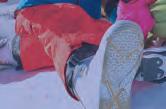

Time phrases without a preposition: next, this, last
We use in + time period to talk about the future.
We’re leaving in 10 minutes. (not after ten minutes)

We use NO preposition before the words next , this , last .
We’re going on holiday next Monday. I haven’t got classes this week.
Last winter, my family went skiing in Bukovel.

Say next/this/last/in to complete the sentences. Sometimes two words are possible.
Model:
I got up early last weekend.
1. They’re flying to the USA … Friday.
2. We went hiking … weekend.
3. They’re coming back … two hours.
4. I didn’t visit my grandparents … summer.
5. I’ll be ready to go … five minutes.
Talking about arrangements and plans
Read and listen to the dialogues. Then practise in pairs.
1. A: Let’s play football after classes.
B: Sorry, I can’t. I’m visiting my grandparents.
A: What about tomorrow? What are you doing?
ride a bike, go for a walk, go window-shopping go shopping with mum, have a Maths lesson, go to a dancing class
B: I’m not sure. I’ll call you later.
2. A: What will the weather be like at the weekend?

B: There’ll be a thunderstorm. Why are you asking?
A: What bad luck! We’re going to the mountains on Saturday.
I don’t know. Tomorrow’s fine. showers for a picnic
B: Why don’t you go on Sunday then?
Make similar dialogues. Replace the words and phrases in bold with the ideas on the right or add your own ideas. Act out the dialogues for the class.
Work in pairs. Choose a role: Student A or Student B. Read the role cards and make a dialogue. Then change roles and make another dialogue. Use the ideas in the box.




It’s Friday and you’re in the park with your parents. You meet a friend (Student B). Ask Student B about his/her plans for Saturday and Sunday. Invite Student B to do something together.
It’s Friday and you’re in the park with your parents. You meet a friend (Student A).
Answer Student A’s questions. Tell Student A you’re busy on Saturday. Agree to do something together on Sunday.
• ride a bike • go hiking • go for a walk • go to the cinema

Read Vicky’s homework about her favourite season. What does she celebrate in summer?
My favourite season is summer. I love summer because we don’t have school and the weather is nice. My family always go to the seaside for a week. I love sitting on the beach and swimming in the sea. My favourite celebration in summer is my birthday. Summer is great!
In your notebook, write about your favourite season. Follow the model.
20
Listen and repeat. Now look at these words. In your notebook, put them into the correct group. Then listen and check your answers. gap German greeting large game vegetarian
gum gym good magic great gentle garden giraffe goodbye generous


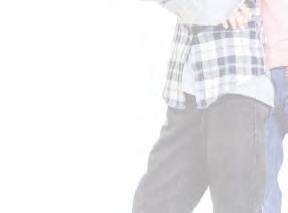


























‘Mind the gap’ is a phrase used on the London Underground and on trains in the UK. Passengers hear and see it at stations where there is a gap between the train door and the station platform.

1. Making suggestions: shall
We use shall to make suggestions.
Shall we see a film?
Shall I help you with your homework?
Make suggestions for these situations. Use Shall I/Shall we and the ideas below.
1. Your friend is bored.
2. Your friend is hungry.
3. You’ve got a new computer game.
4. Your friend is cold.
close the window see a film have something to eat play the game
Read the ad and the announcement below. Then answer the questions.
Participants: all students
Place: Lake Synevyr
Date/time: Saturday, 8 May, from 8:00 am to 5:00 pm
Don’t miss out!
For more information, contact Mr Kovtunenko, Science Teacher, Room 201.
1. What is the ad/announcement about?



2. When will the event take place?
3. Where will the event take place?
4. Who will take part in the event?
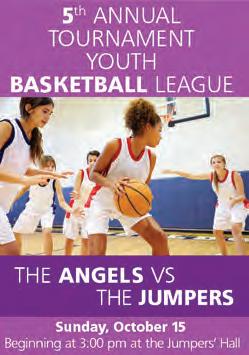
Now choose one event and invite a friend. In your notebook, write a short message about the event, the place, and the time. Follow the model.
2. Word order (statements and questions)
Hi, …! There’s a … on … at … . Are you free then? Shall we go? Bye. Please call.
Read the sentences and then match them with the patterns.
1. She wearscasual clothesevery day.
Doesshe wear casual clothes every day?
What doesshe wear
1. My parentsbought a new cartwo days ago.
Didmy parentsbuy a new car two days ago?
What didmy parentsbuy
1. Borys is buying a T-shirt now.
Is Borys buying a T-shirt now?
What is Borys buying
a. Statements: Subject + Verb + Object + (Adverb)
Yes/No Questions: Auxiliary Verb + Subject + Verb + Object + (Adverb)
Wh-questions: Wh-word + Auxiliary Verb + Subject + Verb + (Adverb)
10
In your notebook, put the words in the correct order.
1. going / after classes / home / I / am .
Borys / speak / German / can ?


was / last week / she / in hospital ?
in Greece / spend / they / will / their holiday .
what time / did / start / the film ?
yesterday / saw / I / the doctor .
your mum / get up / have to / tomorrow / does / early ?
tonight / to the cinema / are / going / we .
















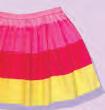
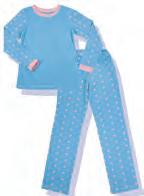

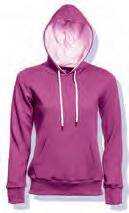

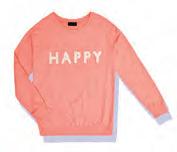


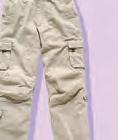


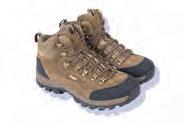

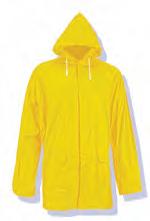

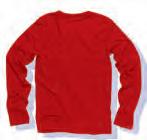






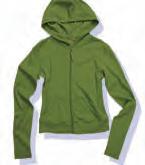

A. Hi. I’m Daisy. I’m wearing a white … with a blue … on the front. I’m in … jeans and orange … . It’s warm and sunny so I’m going to the beach.







B. Hi, guys. I’m Rob. It’s Sunday today so I’m hiking with my parents. I’m wearing a green … and grey … . I’ve got brown … . It’s good to have strong shoes.





13 Work in pairs. Describe a classmate, but don’t say the name. Describe his/her appearance and clothes. Use the ideas in the box below. Your partner makes a guess. Take turns.


Body He’s She’s
tall. of medium height. short. slim. plump.
Hair and face He’s got She’s got
long short dark fair blonde
curly wavy straight hair. big dark small blue round green eyes.

Clothes
She’s wearing He’s wearing
a bright dark light
yellow red blue green
shirt. skirt. dress. blouse. T-shirt jeans. trousers. shoes. trainers.
Read and listen to the dialogues. Then practise in pairs.
A: It’s time to say goodbye.
B: Really? When are you leaving?
A: I’m flying home tomorrow at 3:00 pm.

B: Goodbye then! Have a safe journey home!
A: Thanks. I hope we’ll stay in touch.
A: I’d like to say goodbye to you all.
B: It was so nice having you with us.
A: Thanks a lot. I’ll miss you all!
B: We’ll miss you, too. Come again next year.
on Sunday afternoon
good great

I hope you’ll visit us again
Make similar dialogues. Replace the words and phrases in bold with the words and phrases on the right. Act out the dialogues for the class.
1615
Work in pairs. Choose a role: Student A or Student B. Read the role cards and make a dialogue. Then change roles and make another dialogue.



OK, everyone, it’s time for me to leave/go. See you later/tomorrow/soon.

It was great to see you. Have a lovely/nice/great weekend/ evening/afternoon!
Thank you very much for inviting me/ having me.
Talk to you later.
Have a good day.
You are the host. Student B stayed over. He/She is leaving now. Thank Student B for being your guest and say goodbye.
You are the guest. Student A invited you to stay over. Say it’s time to leave. Thank Student A for being your host and say goodbye.


My favourite clothes
17



Read Borys’s homework about his favourite jeans. Which pair of jeans does he like best?
I like wearing jeans. I wear them every day. Jeans are very comfortable. They are good for all seasons. I’ve got three pairs of jeans.



I like my faded jeans best. My mum bought them for me last Christmas. They look very trendy.
In your notebook, write about your favourite things to wear. Follow the model.

The sounds ŋ and ŋk
Listen and repeat.
ŋ ŋk thing think sing sink bang bank ring rink long link



Now look at these words. In your notebook, put them into the correct group. Then listen and check your answers.
clothing ankle shopping drink wearing pink
Grammar:

Answer
Is
How
a place
Read the sentences and match them with the pictures. Try to guess the meaning of the words in bold.
a. Ukraine is the second biggest country in Europe.
b. It is in the centre of Europe and it borders on seven countries.
c. Most of the country is a plain.
d. The Carpathians are very low mountains.
e. There are a lot of rivers and lakes in Ukraine. There are also the Black Sea and the Sea of Azov in the south.

The letters in these names were
grunhay –nikruae –proeue –namoria –
lodpan –avlomod –bruseal –arisus –
you guess the places?
Listen and choose the correct answer.
What did John want to do in Ukraine?
• He wanted to have fun.
• He wanted to learn to cook national dishes.
• He wanted to play sports.
Listen again and answer the questions.
1. How many people were there in the car?
2. Where did they cross the border?
3. Who had friends in Ukraine?
Listen to part of a text and answer the questions.
Where did John and his family come from?
How old was John’s mum when she started cooking?
When did she decide to cook a large pancake?
Now read the whole text and answer the questions below.
“I was in my kitchen when I heard wonderful news on the radio”, said John’s mother, Erica. “I won the national cooking contest and won a trip to Ukraine for the whole family. It was fantastic!”
This is what Erica said on a TV show yesterday. She and her family came to Ukraine last week. They decided to go by car from London to Kyiv and they crossed a lot of borders in Europe.
“I started cooking when I started going to school. I was 5 then”, said the woman. “I always loved making pancakes and one day I decided to take part in a cooking contest. It was two months ago. So, I bought everything I needed and made a huge pancake for lunch at my son’s school. The pancake was so big that the students couldn’t eat it up and so I became the national winner.”
1. Where did John’s mother hear the news?
2. What did Erica win?
3. When did Erica and her family come to Ukraine?
4. What did Erica always love cooking?
5. Whom did she make the pancake for?
6. How big was the pancake?
We use the with:
The Indian Ocean
The Black Sea
The Dnipro i slands
Greenland but: the Isle of.../ the island of... the Bahamas / the Bahama Islands, the British Isles — plural
The Alps
The Caucasus
The Carpathians but (Mount) Hoverla
d eserts , valleys
the Sahara / the Sahara Desert the Valley of the Kings but: Death Valley, Silicon Valley
America, Australia, Great Britain, Britain, England, Canada, Ireland But: the United States (the U.S.), the United Kingdom (the UK), the Russian Federation – federations the Netherlands, the Philippines – plural the Republic of...
1. We went to … United Kingdom last year.
2. He comes from … America.
3. When I travelled, I loved … Africa and … Sahara Desert.
4. My friend’s granny lives in … Carpathian mountains.
5. My parents lived not far from … Black Sea.
6. She didn’t want to go to … Great Britain.












Say the correct preposition.
Mary doesn’t like travelling … foot. She likes going … car better. Her friend Andrew is lucky because two years ago he travelled across Europe. He started from London … by plane, then he went … train and … coach. But most of all he liked it when he could travel … bike or … foot.
COMMUNICATION
Read and listen to the dialogue. Practise in pairs.
A: Where do you come from?
B: I’m from Ukraine.
A: Where’s that?
B: It’s in the centre of Europe.
A: Where do you come from?
B: I’m from Kyiv.
A: Is it a big city?
B: Yes, it’s the biggest city in Ukraine.
A: Oh, I see.
Make similar dialogues. Give true answers.
2. Talking about past events
12
Work in pairs. Choose a role: Student A or Student B. Read the role cards and make a dialogue. Then change roles and make another dialogue. Use the ideas in the box below.
Student A:
You are a TV journalist. Interview the famous traveller Student B about his/her home country. Find the places on the map. Prepare your questions in advance. The questions in the box can help you.
Student B: You live in Ukraine. Now you are on a TV show in England. Answer the interviewer’s questions.
• Where is Ukraine?
• Where do you live in Ukraine?
• Is it far from rivers, lakes or seas?
• Are there many people?
• Is it a big or a small city / town / village?
• Is it hot/cold in summer / in winter?
• What do the people in Ukraine look like? What are they like? (friendly/unfriendly, shy)
• How did you travel from Ukraine to England?
• What do you like best of all in your home country?
Read John’s homework about their trip. What did John and his mum do when they were in a different country?
Last year my family and I went to Ukraine because my mum won a cooking contest. Ukraine is a big and modern country in the centre of Europe. It has got plains and mountains, rivers and lakes, and two seas – the Black Sea and the Sea of Azov.
We went to Ukraine by car and it was wonderful because we saw a lot of interesting things. We visited many historical places and I even studied in a Ukrainian school and my mum cooked some traditional Ukrainian dishes! The Ukrainian kids were great, and the food was delicious! We had a great time!
In your notebook, write about a trip. Follow the model.
Geographical names
Listen and repeat.14
EuropeRomania
Ukraine Hungary
PolandBelarus



Slovakia The Carpathians
Russia the Black Sea
Moldova the Sea of Azov
Listen to the text. What is the best title?
Write the correct answer in your notebook.
a. The Oldest Woman in the World
b. The Oldest Student in the World


c. The Most Famous Kenyan in the World
2 Listen again. In your notebook, write true or false. Correct the false sentences.
1. Priscilla Sitienei is 80 years old.
2. She didn’t want to go to school when she was younger.

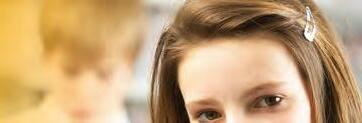
3. The headmaster isn’t very happy that Gogo’s at his school now.
4. Priscilla motivates the other students.
READING Read the article and answer
questions
your notebook.
Most British students who go to a state secondary school have to wear a uniform. In the past, a school uniform was quite formal, almost like an adult suit. Now uniforms are more casual. They generally consist of a T-shirt or polo shirt, a sweatshirt or pullover, trousers for boys and a skirt for girls and shoes or trainers. Some schools prefer uniforms because students look the same and it is difficult to see who is rich and who is poor. But some students say that they want to wear different styles and colours.


Here’s what some British teenagers say:
Source:
Anna:

think wearing a uniform makes me look smart and grown up.’
Mike:

don’t show your personality.’
Steven:
uniforms are really expensive.’
Who has to wear uniforms?
What were uniforms like in the past?
What do uniforms consist of now?
Why do some schools prefer uniforms?

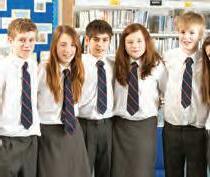
Why don’t some students like uniforms?
Who thinks that uniforms are sometimes not cheap at all?
Work in groups of three. Each group chooses to be Group A or Group B.

You are for school uniforms. Think of three reasons why uniforms are good. Write them down.
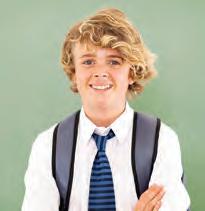
You are against school uniforms. Think of three reasons why uniforms are bad. Write them down.
Then discuss your opinions in groups. Choose a group speaker and share your opinions with the rest of the class. Write your ideas on the board.
page 42
Workbook
I know how to:




to do the Grammar and Vocabulary sections.
can:
describe my body. talk about my health. describe arrangements and plans. describe the weather and seasons. say I need a doctor. talk about clothes. make suggestions.

express ability and possibility. make predictions. talk about future facts. express necessity and obligation. use the Present Continuous for arrangements and plans.



Answer the questions.
1. Do you think it is good that Ukrainian students have to study a foreign language at school?
2. In your opinion, which is the most popular foreign language in Ukraine?
3. Why do you think it is important to learn English?
Discuss Question 3 in pairs or groups. Make a list on the board.
Read the text. In your notebook, match the sentences below with the parts (A–E) of the essay.

1. English is one of the easiest languages.
2. Travelling is easier when you speak English.
3. English is the language of the Internet.


4. English is an international language.


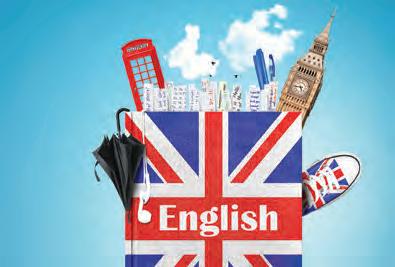
5. You can have fun with English.
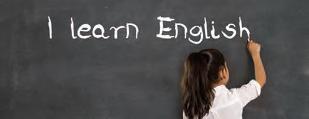
2
Listen to four children answering the question:
Why do you study English?
Compare with the list on the board. In your notebook, note down the different reasons. Add them to the list on the board.
A. Millions of people around the world speak or learn English as a foreign language. English is the international language of business, sport, diplomacy, science, etc. Speaking English will help you communicate with people from all over the world.
B. Some people think that English is very difficult to learn. In fact, it is one of the easiest languages. There are lots of resources you can use to practise your English.
C. Most of the websites on the Internet are in English and you can find information about nearly everything.



D. You can watch thousands of films and television shows in English, sing along to your favourite songs or play video games.
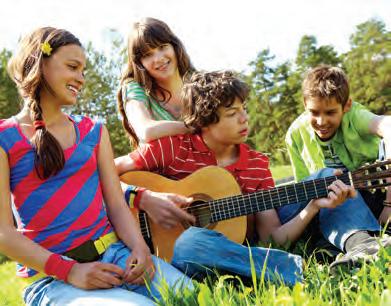
E. English makes travelling easier. You can ask for help in English in every part of the world.
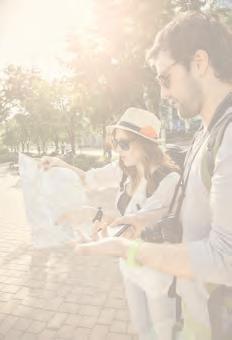
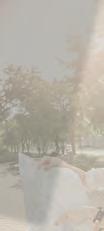
Listen to the song.
Chorus:
Isn’t it great to communicate!
Verse 1:
Know how to write down the date Correctly say your body weight Count right up to eighty-eight Tell people who you love and hate.
Verse 2:
To speak English all day long Understand a new pop song Say things mostly right, not wrong Feel linguistically strong.

Chorus:
Isn’t it great to communicate!
Verse 3:
Let English take you everywhere By bus, by train, up in the air An English speaker’s always there To answer you, to care and share.
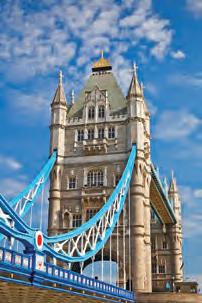
Verse 4:
If you study, you’re not a nerd You understand what you just heard You speak with many an English word And let your speech fly like a bird.
Chorus:
Isn’t it great to communicate!
Source: http://hubpages.com/literature










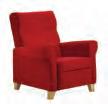


who hasn’t
good manners
to
are
They
who is
other



much
you
the
the
speaks two foreign
the
do you do in the
and his father
a short nap
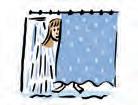
you like
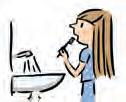
the
then
you start
the
time do you
the
got an English class

time
you do
… Alfredo


from?
then
the
do Alfredo’s
is always on
loves …
the
Natural History


He always is on
is on time
you
do you say
students can
like

the
Borys’s
are
never … on
is
the
students can
the
in the Natural History
test is















Go to the board
write
name of
museum
Which is correct?
Let me see!
I see!
the sentence.
London Eye
turning ...
Complete the sentence.
is a synonym
is your teacher
are Vicky and
doing
of
the
Ben is the name of
the
hotel is ... the corner.
the word.
the way to the nearest
Answer the question.
aren’t you doing now?
to the board
write
opposite of patiently
Complete the question.
, can you tell me the way to the post office?
the
the sentence with the
preposition.
are Vicky and
in front
Palace?

the
gallery is … the left.
the
isn’t the right way.
Complete the dialogue.
Thank you very much.
Answer the question.
is the best time
don’t
back to the station
visit the city/town/ village/place where you live?
answered the
it Sunday
the opposite.
is
enjoyed the




the
the
Watson
around the world.
Say the opposite.
wasn’t sunny
afternoon
didn’t play football.
the
very …
the
then
you … visit your


the
Say the word.
old …
Which is
have
crossed the
the
Say the opposite.
travelled on foot.
didn’t
Which is
the
Complete the
only thing
the
did the
the word.
is
the word.
was the Jones
like
Answer the
Complete the sentence.
looked after the
on the farm?

Go to the board
write the
Simple form
think
Which word has the /
sound?
mother
they
Complete the sentence.
and Justin spent a week on a ...
Complete the
Answer the
do people
from milk?
the word.
the
Apologise for being late.
baby of a sheep
called
Complete the sentence.
did everything … hand.
to the board
write the
Simple form
wear
Complete the question.
you go anywhere last summer?
the
Answer the question.
helped Mrs Jones
the kitchen?
is
the sun

the beach.
the opposite.
many years are there in a century
Answer the question.
got … in
traffic jam.
grandpa fed the
and milked the
did the girls learn from Mrs Jones?

in Ukraine
and
the word.
the
does Borys think about climbing up
the
can see a lot
the
the weather

will Alice stay

the
are ... parks and
the
in Ukraine
the
Treetop Walkway

Which is
are coming …
in an hour.
after an hour.
Complete the sentence.
tired. I ... go to bed early tonight.
Complete the
can you go … a picnic?
is the opposite of
are you ... after
doctor
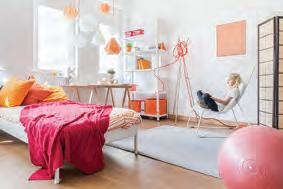

best friend.

friend’s
















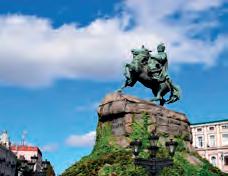


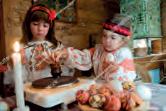









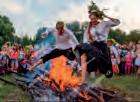

UNIT 1
a little bit /ə ˈlɪt(ə)l bɪt/ трохи abroad, adv /əˈbrɔːd/ за кордоном address, n /əˈdres/ адреса adult, n /ˈædʌlt/ дорослий age, n /eɪdʒ/ вік airport, n /ˈeə(r)pɔː(r)t/ аеропорт application form, n /ˌæplɪˈkeɪʃ(ə)n ˈfɔː(r)m/ анкета, заява area code, n /ˈeəriə ˌkəʊd/ код зони aunt, n /ɑːnt/ тітка backpack, n /ˈbækpæk/ рюкзак between, prep /bɪˈtwiːn/ між, поміж birth, n /bɜː(r)θ/ народження block letters, n (pl) /ˌblɒk ˈletə(r)z/ друковані літери building, n /ˈbɪldɪŋ/ будинок cardinal number, n /ˈkɑː(r)dɪn(ə)l ˌnʌmbə(r)/ кількісний числівник car park, n /ˈkɑː(r) ˌpɑː(r)k/ парковка classmate, n /ˈklɑːsmeɪt/ однокласник country code, n /ˈkʌntri ˌkəʊd/ міжнародний код країни cousin, n /ˈkʌz(ə)n/ двоюрідний брат, двоюрідна сестра date, n /deɪt/ дата date of birth дата народження digit, n /ˈdɪdʒɪt/ цифра entrance, n /ˈentrəns/ вхід excited, adj /ɪkˈsaɪtɪd/ вихід favourite, adj /ˈfeɪv(ə)rət/ улюблений female, n/adj /ˈfiːmeɪl/ особа жіночої статі/жіночий first, adj /fɜː(r)st/ перший first name ім’я flat, n /flæt/ квартира floor, n /flɔː(r)/ підлога; поверх formal, adj /ˈfɔː(r)m(ə)l/ офіційний, формальний gender, n /ˈdʒendə(r)/ стать hospital, n /ˈhɒspɪt(ə)l/ лікарня huge, adj /hjuːdʒ/ величезний important, adj /ɪmˈpɔː(r)t(ə)nt/ важливий informal, adj /ɪnˈfɔː(r)m(ə)l/ неофіційний, неформальний kid, n /kɪd/ дитина Let me help you. Дозвольте (мені) допомогтти вам.
Let’s go. Ходімо. male, n/adj /meɪl/ особа чоловічої статі/чоловічий member, n /ˈmembə(r)/ член, членкиня My school is called … /kɔːld/ Моя школа називається… nationality, n /ˌnæʃəˈnæləti/ національність nephew, n /ˈnefjuː/ племінник niece, n /niːs/ племінниця not at all /ˈnɒt ət ˈɔːl/ зовсім ні
over there /ˈəʊvə(r) ðeə(r)/ десь там personal details, n (pl) /ˈpɜː(r)s(ə)nəl ˈdiːteɪlz/ особисті дані postcode, n /ˈpəʊs(t)kəʊd/ поштовий індекс pupil, n /ˈpjuːp(ə)l/ учень, учениця relative, n /ˈrelətɪv/ родич, родичка second, adj /ˈsekənd/ другий station, n /ˈsteɪʃ(ə)n/ станція; вокзал street, n /striːt/ вулиця surname, n /ˈsɜːneɪm/ прізвище talk, v /tɔːk/ говорити tidy, adj /ˈtaɪdi/ охайний tired, adj /ˈtaɪə(r)d/ втомлений uncle, n /ˈʌŋk(ə)l/ дядько village, n /ˈvɪlɪdʒ/ село
UNIT 2 armchair, n /ˈɑː(r)mtʃeə(r)/ крісло bedside lamp, n /ˌbedsaɪd ˈlæmp/ приліжкова лампа bedside table, n /ˌbedsaɪd ˈteɪb(ə)l/ приліжкова шафа bookcase, n /ˈbʊkkeɪs/ книжкова шкафа brand new, adj /ˌbrænd ˈnjuː/ абсолютно новий bunk bed, n /ˈbʌŋk ˌbed/ двоярусне ліжко check, v /tʃek/ перевіряти cheeky, adj /tʃiːki/ зухвалий, нахабний Don’t be cheeky! Не будь нахабним! chest of drawers, n /ˌtʃest əv ˈdrɔːə(r)z/ комод coffee table, n /ˈkɒfi ˌteɪb(ə)l/ журнальний столик cool, adj /kuːl/ крутий (розм.) Cool! Супер!/Круто!
cupboard, n /ˈkʌbə(r)d/ буфет; сервант curtain, n /ˈkɜː(r)t(ə)n/ занавіска; завіса display cabinet, n /dɪˈspleɪ ˈkæbɪnət/ шафа зі скляними дверцятами downstairs, adv /ˌdaʊnˈsteə(r)z/ внизу; на нижньому поверсі everywhere, adv /ˈevriweə(r)/ всюди find, v /faɪnd/ знаходити fireplace, n /ˈfaɪə(r)pleɪs/ камін flowerpot, n /ˈflaʊə(r)pɒt/ квітковий горщик funny, adj /ˈfʌni/ смішний; кумедний furniture, n (uncountable) /ˈfɜː(r)nɪtʃə(r)/ меблі give, v /ɡɪv/ давати glasses, n (pl) /ˈɡlɑːsɪz/ окуляри ground floor, n /ˌɡraʊnd ˈflɔː(r)/ перший поверх hall, n /hɔːl/ зал; передпокій handbag, n /ˈhæn(d)bæɡ/ дамська сумочка keep, v /kiːp/ берегти; тримати key, n /kiː/ ключ kind, n /kaɪnd/ вид; різновид all kinds of things всілякі речі
lose, v /luːz/ втрачати; програвати lovely, adj /ˈlʌvli/ чудовий mantelpiece, n /ˈmænt(ə)lpiːs/ полиця над каміном mean, v /miːn/ означати over, prep /ˈəʊvə(r)/ над; через; по; за; понад; більш як poster, n /ˈpəʊstə(r)/ плакат rug, n /rʌɡ/ килимок share, v /ʃeə(r)/ поділитися shelf, n /ʃelf/ полиця sofa, n /ˈsəʊfə/ диван; софа somewhere, adv /ˈsʌmweə(r)/ десь; куди небудь spare, adj /speə(r)/ запасний; вільний spare key запасний ключ stairs, n (pl) /steə(r)z/ сходи tiny, adj /ˈtaɪni/ крихітний TV cabinet, n /ˌtiːˈviː ˈkæbɪnət/ тумба під телевізор upstairs, adv /ʌpˈsteə(r)z/ нагорі, нагору сходами wardrobe, n /ˈwɔː(r)drəʊb/ шафа для одягу
UNIT 3
appearance, n /əˈpɪərəns/ поява; зовнішність autumn, n /ˈɔːtəm/ осінь blonde, adj /blɒnd/ білявий clever, adj /ˈklevə(r)/ розумний communicative, adj /kəˈmjuːnɪkətɪv/ товариський, балакучий curly, adj /ˈkɜː(r)li/ кучерявий cute, adj /kjuːt/ милий everybody, pron /ˈevriˌbɒdi/ кожний; усі friendly, adj /ˈfren(d)li/ дружній gymnast, n /ˈdʒɪmnæst/ гімнастка handsome, adj /ˈhæns(ə)m/ вродливий (про чоловіка) impatient, adj /ɪmˈpeɪʃ(ə)nt/ нетерплячий impolite, adj /ˌɪmpəˈlaɪt/ неввічливий interested (in), adj /ˈɪntrəstɪd/ зацікавлений (у) look, v /lʊk/ дивитися
What does she/he look like? Як вона/він виглядає?
Lucky you! Щасливчик!/Щасливиця! medium height, n /ˈmiːdiəm ˌhaɪt/ середній зріст of medium height середнього зросту middle aged, adj /ˌmɪd(ə)l ˈeɪdʒd/ середнього віку nightmare, n /ˈnaɪtmeə(r)/ кошмар
What a nightmare! Який кошмар! old, adj /əʊld/ старий ordinary, adj /ˈɔː(r)d(ə)n(ə)ri/ звичайний overweight, adj /ˌəʊvə(r)ˈweɪt/ надмірна вага patient, adj /ˈpeɪʃ(ə)nt/ терплячий personality, n /ˌpɜː(r)səˈnæləti/ особистість plump, adj /plʌmp/ повненький, огрядний
polite, adj /pəˈlaɪt/ ввічливий short, adj /ʃɔː(r)t/ короткий; низький shy, adj /ʃaɪ/ сором’язливий silly, adj /ˈsɪli/ дурний skinny, adj /ˈskɪni/ худий slim, adj /slɪm/ стрункий sound, v /saʊnd/ звучати spring, n /sprɪŋ/ весна straight, adj /streɪt/ прямий; прямо subject, n /ˈsʌbdʒɪkt/ предмет summer, n /ˈsʌmə(r)/ літо tall, adj /tɔːl/ високий thin, adj /θɪn/ тонкий; худий trendy, adj /ˈtrendi/ модний unfriendly, adj /ʌnˈfren(d)li/ недружній weightlifter, n /ˈweɪtˌlɪftə(r)/ штангіст
Well done! /ˈwel ˈdʌn/ Молодець! Добре! What a pity! /ˈwɒt əˈpɪti/ Шкода! Який жаль! What’s she/he like? Яка вона?/Який він? young, adj /jʌŋ/ молодий
UP TO NOW 1 architect, n /ˈɑː(r)kɪˌtekt/ архітектор call, v /kɔːl/ кликати; викликати designer, n /dɪˈzaɪnə(r)/ дизайнер guess, v /ɡes/ здогадуватися; вгадувати inside, adv /ˈɪnˌsaɪd/ всередині light, n /laɪt/ світло living area, n /ˈlɪvɪŋ ˌeəriə/ житлова зона natural, adj /ˈnætʃ(ə)rəl/ природний outdoor, adj /ˈaʊtˌdɔː(r)/ відкритий; зовнішній owner, n /ˈəʊnə(r)/ власник wheel, n /wiːl/ колесо whole, adj /həʊl/ цілий wood, n /wʊd/ ліс; деревина
UNIT 4
Are you off to school? Ти йдеш до школи? brush, v /brʌʃ/ зубна щітка brush my teeth чистити зуби daily, adj /ˈdeɪli/ повсякденний; денний even, adv /ˈiːv(ə)n/ навіть jogging, n (uncountable) /ˈdʒɒɡɪŋ/ біг підтюпцем go jogging бігати get dressed одягатися midnight n (uncountable) /ˈmɪdnaɪt/ опівночі nap, v /næp/ дрімати have a nap подрімати need, v /niːd/ потребувати rest, n /rest/ відпочинок have a rest відпочити routine, n /ruːˈtiːn/ рутина, заведений порядок shower, n /ˈʃaʊə(r)/ душ
have a shower приймати душ siesta, n /siˈestə/ сієста sleepy, adj /ˈsliːpi/ сонний That’s so cool! Це так круто! (розм.) wake up, v /weɪk ʌp/ прокидатися
UNIT 5 absolutely, adv /ˈæbsəluːtli/ абсолютно agree, v /əˈɡriː/ погоджуватися alive, adj /əˈlaɪv/ живий always, adv /ˈɔːlweɪz/ завжди amazing, adj /əˈmeɪzɪŋ/ вражаючий, дивовижний anymore, adv /ˌeniˈmɔː(r)/ більше Are you kidding? Ти жартуєш? Art /ɑː(r)t/ мистецтво attraction, n /əˈtrækʃ(ə)n/ атракціон bone, n /bəʊn/ кістка colour-coded, adj /ˈkʌlə(r) ˈkəʊdɪd/ кольорове кодування cover, v /ˈkʌvə(r)/ вкривати dinosaur, n /ˈdaɪnəsɔː(r)/ динозавр disagree, v /ˌdɪsəˈɡriː/ не погоджуватися do experiments /duː ɪkˈsperɪmənts/ проводити експерименти don’t mind /ˈdəʊnt maɪnd/ не заперечувати enormous, adj /ɪˈnɔː(r)məs/ величезний exist, v /ɪɡˈzɪst/ існувати free, adj /friː/ безкоштовний French /frentʃ/ французька мова
Geography and Economics /dʒiːˈɒɡrəfi ənd ˌiːkəˈnɒmɪks/ географія й економіка German /ˈdʒɜː(r)mən/ німецька мова go hiking /ˈɡəʊ ˈhaɪkɪŋ/ відправитися в похід hang out, v /ˈhæŋ aʊt/ вивішувати; тусуватися hate, v /heɪt/ ненавидіти How do you find? Як ти знаходиш?
IT (Information Technology) /ˌɪnfə(r)ˈmeɪʃ(ə)n tekˈnɒlədʒi/ інформаційні технології History and Civilisations /ˈhɪst(ə)ri ənd ˌsɪvəlaɪˈzeɪʃ(ə)nz/ історія й цивілізація life-sized, adj /ˈlaɪf ˌsaɪzd/ у натуральну величину Literature /ˈlɪtrətʃə(r)/ література Maths /mæθs/ математика measure, v /ˈmeʒə(r)/ вимірювати medium-sized, adj /ˈmiːdiəm ˌsaɪzd/ середнього розміру monster, n /ˈmɒnstə(r)/ чудовисько never, adv /ˈnevə(r)/ ніколи object, n /ˈɒbdʒɪkt/ предмет often, adv /ˈɒf(ə)n/ часто on display /ɒn dɪˈspleɪ/ демонстрований once, adv /wʌns/ одного разу Physical Education /ˈfɪzɪk(ə)l ˌedjʊˈkeɪʃ(ə)n/ фізичне виховання
plant, n /plɑːnt/ рослина pocket-sized, adj /ˈpɒkɪt ˌsaɪzd/ кишенькового розміру prehistoric, adj /ˌpriːhɪˈstɒrɪk/ доісторичний rock, n /rɒk/ скеля; камінь scary, adj /ˈskeəri/ жахливий Science /ˈsaɪəns/ природничі науки scientist, n /ˈsaɪəntɪst/ вчений, вчена skull, n /skʌl/ череп sometimes, adv /ˈsʌmtaɪmz/ іноді stone, n /stəʊn/ камінь Technology and Enterprise /tekˈnɒlədʒi ənd ˈentə(r)ˌpraɪz/ технології та підприємництво till, prep /tɪl/ до; доти, поки top, adj /tɒp/ найвищий touch, v /tʌtʃ/ торкатися trip, n /trɪp/ поїздка twice, adv /twaɪs/ двічі useful, adj /ˈjuːsf(ə)l/ корисний usually, adv /ˈjuːʒʊəli/ зазвичай visitor, n /ˈvɪzɪtə(r)/ відвідувач, відвідувачка waste, n /weɪst/ відходи a waste of time марна трата часу
UNIT 6 according to, prep /əˈkɔː(r)dɪŋ ˌtuː/ згідно з; за according to tradition за традиціями also, adv /ˈɔːlsəʊ/ також bacon, n (uncountable) /ˈbeɪkən/ бекон bean, n /biːn/ квасоля; квасолина biscuit, n /ˈbɪskɪt/ (сухе) печиво bowl, n /bəʊl/ миска bread, n (uncountable) /bred/ хліб bring, v /brɪŋ/ приносити Brussels sprout, n /ˈbrʌsəlz ˈspraʊt/ брюссельська капуста butter, n (uncountable) /ˈbʌtə(r)/ масло cabbage, n /ˈkæbɪdʒ/ капуста celebrate, v /ˈseləbreɪt/ святкувати celebration, n /ˌseləˈbreɪʃ(ə)n/ свято cereal, n /ˈsɪəriəl/ крупа; (звич. з pl) хлібні злаки Christmas, n /ˈkrɪsməs/ Різдво Christmas Eve, n /ˌkrɪsməs ˈiːv/ Святвечір Christmas pudding, n /ˌkrɪsməs ˈpʊdɪŋ/ різдвяний пудинг coin, n /kɔɪn/ монета consist of, v /kənˈsɪst əf/ складатися з cranberry, n /ˈkrænb(ə)ri/ журавлина cream, n (uncountable) /kriːm/ вершки dairy section, n /ˌdeəri ˈsekʃ(ə)n/ відділ з молочними продуктами delicious, adj /dɪˈlɪʃəs/ смачний dessert, n /dɪˈzɜː(r)t/ десерт
different, adj /ˈdɪfrənt/ різний dried, adj /draɪd/ висушений food, n /fuːd/ їжа fruity, adj /ˈfruːti/ фруктовий grapes, n /ɡreɪps/ виноград gravy, n (uncountable) /ˈɡreɪvi/ підлива greeting, n /ˈgriːtɪŋ/ привітання grilled meat, n /ˌɡrɪld ˈmiːt/ м’ясо на грилі habit, n /ˈhæbɪt/ звичка hide, v /haɪd/ приховувати honey, n (uncountable) /ˈhʌni/ мед ingredient, n /ɪnˈɡriːdiənt/ інгредієнт; складова частина invitе, v /ɪnˈvaɪt/ запрошувати jam, n /dʒæm/ варення; джем lettuce, n /ˈletɪs/ листя салату, салат (рослина) loaf, n /ləʊf/ буханець luck, n (uncountable) /lʌk/ удача; успіх Many happy returns! Усього найкращого! meal, n /miːl/ прийом їжі meat, n (uncountable) /miːt/ м’ясо nowadays, adv /ˈnaʊədeɪz/ у наші дні nut, n /nʌt/ горіх ordinal number, n /ˈɔː(r)dɪn(ə)l ˌnʌmbə(r)/ порядковий числівник odd, adj /ɒd/ непарний odd number непарне число pancake, n /ˈpænkeɪk/ млинець part, n /pɑː(r)t/ частина pastry, n /ˈpeɪstri/ тістечко peach, n /piːtʃ/ персик pear, n /peə(r)/ груша peas, n /piːz/ горох pickle, n /ˈpɪk(ə)l/ солоні огірки, соління preparе, v /prɪˈpeə(r)/ готувати pudding, n /ˈpʊdɪŋ/ пудинг pumpkin, n /ˈpʌmpkɪn/ гарбуз receive, v /rɪˈsiːv/ отримувати rice, n /raɪs/ рис roast turkey, n /ˌrəʊst ˈtɜː(r)ki/ печена індичка salami, n /səˈlɑːmi/ салямі sauce, n /sɔːs/ соус sausage, n /ˈsɒsɪdʒ/ ковбаса silver, adj /ˈsɪlvə(r)/ срібний stir, v /stɜː(r)/ перемішувати strawberry, n /ˈstrɔːb(ə)ri/ полуниця stuff, v /stʌf/ фарширувати, начиняти stuffed pepper фарширований перець stuffing, n (uncountable) /ˈstʌfɪŋ/ начинка sunset, n /ˈsʌnˌset/ захід сонця sweetcorn, n (uncountable) /ˈswiːtkɔː(r)n/ солодка кукурудза tradition, n /trəˈdɪʃ(ə)n/ традиція traditional, adj /trəˈdɪʃ(ə)nəl/ традиційний
use, v /juːz/ використовувати vegetarian, n/adj /ˌvedʒɪˈteərɪən/ вегетаріанець, вегетаріанка; вегетаріанський vine, n /vaɪn/ лоза vine leaf, n /ˈvaɪn ˌliːf/ виноградний лист watermelon, n /ˈwɔːtə(r)ˌmelən/ диня wish, n /wɪʃ/ бажання make a wish загадувати бажання yoghurt, n (uncountable) /ˈjɒɡə(r)t/ йогурт You’re welcome. Ласкаво просимо!/Нема за що!
UP TO NOW 2
appear, v /əˈpɪə(r)/ з’являтися band, n /bænd/ група express, v /ɪkˈspres/ висловлювати festive, adj /ˈfestɪv/ святковий float, n /fləʊt/ надувний круг; буй gather, v /ˈɡæðə(r)/ збирати giant, adj /ˈdʒaɪənt/ велетенський march, v /mɑː(r)tʃ/ марширувати parade, n /pəˈreɪd/ парад Thanksgiving Day /ˌθæŋksˈɡɪvɪŋ ˌdeɪ/ День подяки together, adv /təˈɡeðə(r)/ разом get together збиратися разом trace, v /treɪs/ слідувати
FUN TIME 1 actor, n /æktə(r)/ актор artistic, adj /ɑː(r)ˈtɪstɪk/ художній bluebell, n /ˈbluːˌbel/ дзвіночок (рослина) capital, n /ˈkæpɪt(ə)l/ столиця castle, n /ˈkɑːs(ə)l/ замок cause, v /kɔːz/ спричиняти choir, n /kwaɪə(r)/ хор male voice choir чоловічий хор coast, n /kəʊst/ узбережжя daffodil, n /ˈdæfədɪl/ нарцис emblem, n /ˈembləm/ символ, емблема especially, adv /ɪˈspeʃ(ə)li/ особливо fishing, n /ˈfɪʃɪŋ/ риболовля geographical, adj /ˌdʒiːəˈɡræfɪk(ə)l/ географічний include, v /ɪnˈkluːd/ містити в собі; включати incorrect, adj /ˌɪnkəˈrekt/ неправильний be made up, v складатися з island, n /ˈaɪlənd/ острів kilt, n /kɪlt/ кілт (традиційний чоловічий шотландський одяг) leek, n /liːk/ цибуля-порей medieval, adj /ˌmediˈiːv(ə)l/ середньовічний mountainous, adj /ˈmaʊntɪnəs/ гірський musician, n /mjʊˈzɪʃ(ə)n/ музикант mysterious, adj /mɪˈstɪəriəs/ таємничий
north, n /nɔː(r)θ/ північ northern, adj /ˈnɔː(r)ðə(r)n/ північний offence, n /əˈfens/ правопорушення; образа cause offence вчиняти протиправні дії; ображати official, adj /əˈfɪʃ(ə)l/ офіційний poetry, n /ˈpəʊɪtri/ поезія political, adj /pəˈlɪtɪk(ə)l/ політичний pub, n /pʌb/ паб rugby, n /ˈrʌɡbi/ регбі shamrock, n /ˈʃæmrɒk/ трилисник short, adj /ʃɔː(r)t/ короткий situated, adj /ˈsɪtʃueɪtɪd/ розташований and so on тощо, і так далі star, n /stɑː(r)/ зірка synonym, n /ˈsɪnənɪm/ синонім term, n /tɜː(r)m/ термін thistle, n /ˈθɪs(ə)l/ будяк unicorn, n /ˈjuːnɪˌkɔː(r)n/ єдиноріг university, n /ˌjuːnɪˈvɜː(r)səti/ університет voice, n /vɔɪs/ голос western, adj /ˈwestə(r)n/ західний writer, n /ˈraɪtə(r)/ письменник wrongly, adv /ˈrɒŋli/ неправильно
UNIT 7
above, prep /əˈbʌv/ вище; більш як along, prep /əˈlɒŋ/ уздовж ancient, adj /ˈeɪnʃ(ə)nt/ стародавній angrily, adv /ˈæŋɡrili/ сердито bank, n /bæŋk/ банк boat, n /bəʊt/ човен bridge, n /brɪdʒ/ міст capsule, n /ˈkæpsjuːl/ капсула carefully, adv /ˈkeə(r)f(ə)li/ уважно cathedral, n /kəˈθiːdrəl/ собор coach station, n /ˈkəʊtʃ ˌsteɪʃ(ə)n/ автовокзал coach, n /kəʊtʃ/ міжміський автобус corner, n /ˈkɔː(r)nə(r)/ кут
Do you know how to get to ...? Ви знаєте, як дістатися до ...? duck, n /dʌk/ качка enjoy, v /ɪnˈdʒɔɪ/ насолоджуватися excuse, v/n /ɪkˈskjuːz/ вибачатися/вибачення fair, n /feə(r)/ ярмарок feed, n /fiːd/ харчування flag, n /flæɡ/ прапор fortress, n /ˈfɔː(r)trəs/ фортеця gallery, n /ˈɡæləri/ галерея gently, adv /ˈdʒentli/ ніжно give directions давати вказівки Go back and then ask again. Поверніться, а потім запитайте знову. Go straight ahead. Ідіть прямо.
guard, n /ɡɑː(r)d/ варта guess, v /ɡes/ здогадуватися; вгадувати heart, n /hɑː(r)t/ серце library, n /ˈlaɪbrəri/ бібліотека light show, n /ˈlaɪt ˌʃəʊ/ світлове шоу mineral spring, n /ˈmɪn(ə)rəl ˌsprɪŋ/ мінеральне джерело mountain resort, n /ˈmaʊntɪn rɪˈzɔː(r)t/ гірський курорт nickname, n /ˈnɪkˌneɪm/ нік, прізвисько palace, n /ˈpæləs/ палац past, prep /pɑːst/ повз; понад; після patiently, adv /ˈpeɪʃ(ə)ntli/ терпляче peaceful, adj /ˈpiːsf(ə)l/ тихий, спокійний post office, n /ˈpəʊst ˌɒfɪs/ пошта queue, n /kjuː/ черга relax, v /rɪˈlæks/ розслаблятися seaside resort, n /ˈsiːˌsaɪd rɪˈzɔː(r)t/ морський курорт sights, n (pl) /saɪts/ пам’ятки; визначні місця slowly, adv /ˈsləʊli/ повільно square, n /skweə(r)/ майдан stadium, n /ˈsteɪdiəm/ стадіон stranger, n /ˈstreɪndʒə(r)/ незнайомець Take this road. Іди цією дорогою. tour guide, n /ˈtʊə(r) ˌɡaɪd/ туристичний путівник tower, n /ˈtaʊə(r)/ вежа traffic lights, n (pl) /ˈtræfɪk ˌlaɪts/ світлофор
UNIT 8
across, prep /əˈkrɒs/ через; упоперек adventure, n /ədˈventʃə(r)/ пригода alone, adv /əˈləʊn/ на самоті around, prep, adv /əˈraʊnd/ навколо beach, n /biːtʃ/ пляж be afraid of /biː əˈfreɪd əv/ боятися brave, adj /breɪv/ сміливий cave, n /keɪv/ печера continent, n /ˈkɒntɪnənt/ континент decide, v /dɪˈsaɪd/ вирішувати depart, v /dɪˈpɑː(r)t/ вирушати; від’їжджати desert, n /ˈdezə(r)t/ пустеля discover, v /dɪˈskʌvə(r)/ відкривати; виявляти exciting, adj /ɪkˈsaɪtɪŋ/ хвилюючий extraordinary, adj /ɪkˈstrɔː(r)d(ə)n(ə)ri/ надзвичайний gorgeous, adj /ˈɡɔː(r)dʒəs/ чудовий hill, n /hɪl/ пагорб historic, adj /hɪˈstɒrɪk/ історичний inspire, v /ɪnˈspaɪə(r)/ надихати impressive, adj /ɪmˈpresɪv/ вражаючий journey, n /ˈdʒɜː(r)ni/ подорож lake, n /leɪk/ озеро
mount, n /maʊnt/ височина; гора Mount Everest /ˌmaʊnt ˈev(ə)rɪst/ гора Еверест ocean, n /ˈəʊʃ(ə)n/ океан peninsula, n /pəˈnɪnsjʊlə/ півострів return, v /rɪˈtɜː(r)n/ повертати; повертатися sail, v /seɪl/ ходити під вітрилами sign, v /saɪn/ підписувати solo, adv /ˈsəʊləʊ/ один, без партнера tent, n /tent/ палатка unassisted, adj /ˌʌnəˈsɪstɪd/ без допомоги valley, n /ˈvæli/ долина waterfall, n /ˈwɔːtə(r)ˌfɔːl/ водоспад world, n /wɜː(r)ld/ світ
UNIT 9
alarm clock, n /əˈlɑː(r)m ˌklɒk/ будильник another, pron /əˈnʌðə(r)/ інший, ще один by hand /baɪ ˈhænd/ від руки catch, v /kætʃ/ ловити, спіймати catch the sun засмагати century, n /ˈsentʃəri/ століття cottage, n /ˈkɒtɪdʒ/ котедж; заміський будинок cow, n /kaʊ/ корова dawn, n /dɔːn/ світанок farm, n /fɑː(r)m/ ферма fiddle, n /ˈfɪd(ə)l/ скрипка fire, n /ˈfaɪə(r)/ вогонь; пожежа fire brigade, n /ˈfaɪə(r) brɪˈɡeɪd/ пожежна команда goat, n /ɡəʊt/ коза happen, v /ˈhæpən/ траплятися hear, v /hɪə(r)/ чути hen, n /hen/ курка homemade, adj /ˌhəʊmˈmeɪd/ саморобний lamb, n /læm/ ягня look after, v /lʊk ˈɑːftə(r)/ наглядати; піклуватися maize, n (uncountable) /meɪz/ кукурудза (бр. англ.) milk, v /mɪlk/ молоко miss, v /mɪs/ сумувати; не досягати мети oats, n (pl) /əʊts/ овес oversleep, v /ˌəʊvə(r)ˈsliːp/ проспати pig, n /pɪg/ порося put out, v /pʊt aʊt/ погасити put out a fire погасити пожежу save, v /seɪv/ зберігати sea, n /siː/ море sell, v /sel/ продавати sheep, n /ʃiːp/ вівця (множ. sheep) sunflower, n /ˈsʌnˌflaʊə(r)/ соняшник suntan, n /ˈsʌntæn/ засмага take a seat /ˈteɪk ə ˈsiːt/ присідати tart, n /tɑː(r)t/ домашній пиріг teach, v /tiːtʃ/ навчати, викладати
terribly, adv /ˈterəbli/ жахливо, страшно vet, n /vet/ ветеринар wear, v /weə(r)/ носити (одяг), бути одягненим wheat, n (uncountable) /wiːt/ пшениця zoo, n /zuː/ зоопарк
UP TO NOW 3 bagpipes, n (pl) /ˈbæɡˌpaɪps/ волинка haggis, n /ˈhæɡɪs/ шотландська національна страва firework, n /ˈfaɪə(r)ˌwɜː(r)k/ феєрверк site, n /saɪt/ об’єкт, місце
UNIT 10 allergy, n /ˈælə(r)dʒi/ алергія ankle, n /ˈæŋk(ə)l/ щиколотка appointment, n /əˈpɔɪntmənt/ прийом (у лікаря) broken, adj /ˈbrəʊkən/ зламаний cavity, n /ˈkævəti/ порожнина cough, n /kɒf/ кашель dentist, n /ˈdentɪst/ стоматолог elbow, n /ˈelbəʊ/ лікоть fever, n /ˈfiːvə(r)/ лихоманка, висока температура filling, n /ˈfɪlɪŋ/ пломба finger, n /ˈfɪŋɡə(r)/ палець на руці flu, n (uncountable) /fluː/ грип I’m coming down with flu. Я захворів на грип. headache, n /ˈhedeɪk/ головний біль hurt, v /hɜː(r)t/ боліти, завдавати біль
It hurts. Мені боляче. knee, n /niː/ коліно neck, n /nek/ шия painful, adj /ˈpeɪnf(ə)l/ болісно pick up, v /ˈpɪk ˌʌp/ піднімати practice, n /ˈpræktɪs/ лікарська практика runny nose, n /ˌrʌni ˈnəʊz/ нежить shoulder, n /ˈʃəʊldə(r)/ плече sick, adj /sɪk/ хворий I feel sick. Мені погано. slip, v /slɪp/ послизнутися sore throat, n /ˌsɔː(r) ˈθrəʊt/ хворе горло sprained, adj /spreɪnd/ вивихнений stomach, n /ˈstʌmək/ живіт; шлунок stomach ache, n /ˈstʌmək ˌeɪk/ біль у животі swollen, adj /ˈswəʊlən/ набряклий toe, n /təʊ/ палець на нозі toothache, n /ˈtuːθeɪk/ зубний біль tongue, n /tʌŋ/ язик urgent, adj /ˈɜː(r)dʒ(ə)nt/ нагальний, невідкладний weak, adj /wiːk/ слабкий
I feel weak. Я відчуваю слабкість. Will that be painful? Це буде боляче?
wrist, n /rɪst/ зап’ясток wrong, adj /rɒŋ/ неправильний
What’s wrong with you? Що з тобою?
UNIT 11
announcement, n /əˈnaʊnsmənt/ оголошення arrange, v /əˈreɪndʒ/ домовлятися bet, v /bet/ закладати climb, v /klaɪm/ підійматися
Come on. /ˈkʌm ɒn/ Ходімо! chicken, n /ˈtʃɪkɪn/ курча; боягуз (розм.)
Don’t be a chicken! Не будь боягузом! drizzle, n /ˈdrɪz(ə)l/ дощ, мряка dungeon, n /ˈdʌndʒ(ə)n/ підземелля far, adj /fɑː(r)/ далекий, віддалений fog, n /fɒɡ/ імла, туман gap, n /ɡæp/ пробіл; дірка glasshouse, n /ˈɡlɑːshaʊs/ оранжерея gum, n /ɡʌm/ гумка; жуйка gym, n /dʒɪm/ спортивний зал hailstorm, n /ˈheɪlˌstɔː(r)m/ град hot, adj /hɒt/ спекотний hungry, adj /ˈhʌŋɡri/ голодний Indian summer, n /ˌɪndiən ˈsʌmə(r)/ бабине літо indoor, adj /ˈɪndɔː(r)/ закритий; хатній It’s bucketing down. Ллє як з відра. mild, adj /maɪld/ помірний news, n (uncountable) /njuːz/ новина rainforest, n /ˈreɪnˌfɒrɪst/ тропічний ліс rainy, adj /ˈreɪni/ дощовий shower, n /ˈʃaʊə(r)/ злива stuffy, adj /ˈstʌfi/ задушливий sunny, adj /ˈsʌni/ сонячний then, adv /ðen/ потім; тоді thirsty, adj /ˈθɜː(r)sti/ спраглий thunderstorm, n /ˈθʌndə(r)stɔː(r)m/ гроза treetops, n (pl) /ˈtriːtɒps/ крони дерев underground, n /ˌʌndə(r)ˈɡraʊnd/ метро (бр. англ.) walkway, n /ˈwɔːkweɪ/ пішохідна доріжка window-shopping, n розглядання вітрин go window-shopping розглядати вітрини, не купуючи нічого
UNIT 12 annual, adj /ˈænjʊəl/ щорічний birdwatching, n (uncountable) /ˈbɜː(r)dˌwɒtʃɪŋ/ спостереження за птахами borrow, v /ˈbɒrəʊ/ позичати cargo pants, n (pl) /ˈkɑː(r)ɡəʊ ˌpænts/ камуфляжні штани casual, adj /ˈkæʒuəl/ буденний clothes, n (pl) /kləʊðz/ одяг
cropped jeans, n /ˌkrɒpt ˈdʒiːnz/ укорочені джинси event, n /ɪˈvent/ подія faded jeans, n /ˌfeɪdɪd ˈdʒiːnz/ вицвілі джинси flip-flops, n /flɪpflɒps/ капці give someone a lift підвезти когось hooded, adj /ˈhʊdɪd/ з капюшоном I’m all ears. Я дуже уважно тебе слухаю. leggings, n (pl) /ˈleɡɪŋz/ легінси long-sleeved T-shirt футболка з довгими рукавами mind, v /maɪnd/ звертати увагу Mind the gap. Зверніть увагу на відстань до платформи! participant, n /pɑː(r)ˈtɪsɪpənt/ учасник platform, n /ˈplætfɔː(r)m/ платформа pyjamas, n (pl) /pəˈdʒɑːməz/ піжама raincoat, n /ˈreɪnkəʊt/ плащ rink, n /rɪŋk/ каток sink, v/n /sɪŋk/ затонути; раковина size, n /saɪz/ розмір What size are you? Який розмір ви носите? sleeve, n /sliːv/ рукав smart, adj /smɑː(r)t/ розумний, дотепний stay in touch залишатися на зв’язку suggest, v /səˈdʒest/ пропонувати suggestion, n /səˈdʒestʃ(ə)n/ пропозиція sweatshirt, n /ˈswetʃɜː(r)t/ світшот sweatshirt with a print світшот с надписом чи малюнком tournament, n /ˈtʊə(r)nəmənt/ турнир trainer, n /ˈtreɪnə(r)/ тренер Typical. Типово.
UP TO NOW 4 grown-up, adj /ˈɡrəʊnʌp/ дорослий headmaster, n /ˌhedˈmɑːstə(r)/ директор suit, n /suːt/ костюм
FUN TIME 2 nerd, n inf. /nɜː(r)d/ «ботанік»; комп’ютерний маніяк (розм.) resource, n /rɪˈsɔː(r)s/ джерело; матеріали для читання (слухання, перегляду) speech, n /spiːtʃ/ промова weight, n /weɪt/ вага
be /bi/ was /wɒz/, were /wɜː/ бути become /bɪˈkʌm/ became /bɪˈkeɪm/ ставати; зробити(ся) begin /bɪˈɡɪn/ began /bɪˈgæn/ починати(ся) break /breɪk/ broke /brəʊk/ ламати build /bɪld/ built /bɪlt/ будувати buy /baɪ/ bought /bɔːt/ купувати catch /kætʃ/ caught /kɔːt/ ловити; спіймати choose /tʃuːz/ chose /tʃəʊz/ обирати come /kʌm/ came /keɪm/ приходити cost /kɒst/ cost /kɒst/ коштувати do /du/ did /dɪd/ робити draw /drɔː/ drew /druː/ малювати drink /drɪŋk/ drank /dræŋk/ пити drive /draɪv/ drove /drəʊv/ керувати eat /iːt/ ate /еt/ їсти fall /fɔːl/ fell /fel/ падати feed /fiːd/ fed /fed/ годувати feel /fiːl/ felt /felt/ відчувати fight /faɪt/ fought /fɔːt/ битися; змагатися find /faɪnd/ found /faʊnd/ знаходити fly /flaɪ/ flew /fluː/ літати get /get/ got /ɡɒt/ отримувати give /gɪv/ gave /geɪv/ давати go /gəʊ/ went /went/ йти; їхати grow /grəʊ/ grew /gruː/ рости have /hæv/ had /hæd/ мати hear /hɪə/ heard /hɜː(r)d/ чути hurt /hɜː(r)t/ hurt /hɜː(r)t/ боліти, завдавати біль keep /kiːp/ kept /kept/ берегти; тримати know /nəʊ/ knew /njuː/ знати leave /liːv/ left /left/ залишати lose /luːz/ lost /lɒst/ втрачати
make /meɪk/ made /meɪd/ робити mean /miːn/ meant /ment/ означати meet /miːt/ met /met/ зустрічати pay /peɪ/ paid /peɪd/ платити put /pʊt/ put /pʊt/ класти read /riːd/ read /red/ читати ride /raɪd/ rode /rəʊd/ їздити (на велосипеді) ring /rɪŋ/ rang /ræŋ/ дзвеніти run /rʌn/ ran /ræn/ бігати say /seɪ/ said /sеd/ казати see /siː/ saw /sɔː/ бачити sell /sel/ sold /səʊld/ продавати send /send/ sent /sent/ відправляти shut /ʃʌt/ shut /ʃʌt/ закривати sing /sɪŋ/ sang /sæŋ/ співати sit /sɪt/ sat /sæt/ сидіти sleep /siːp/ slept /slept/ спати speak /spiːk/ spoke /spəʊk/ говорити spend /spend/ spent /spent/ витрачати, проводити (час) stand /stænd/ stood /stʊd/ стояти swim /swɪm/ swam /swæm/ плавати take /teɪk/ took /tʊk/ брати teach /tiːtʃ/ taught /tɔːt/ навчати tell /tel/ told /təʊld/ розповідати; сказати think /θɪŋk/ thought /θɔːt/ думати throw /θrəʊ/ threw /θruː/ кидати understand /ˌʌndə(r)ˈstænd/ understood /ˌʌndə(r)ˈstʊd/ розуміти wake /weɪk/ woke /wəʊk/ прокидатися; будити wear /weə/ wore /wɔː/ носити (одяг) win /wɪn/ won /wʌn/ здобувати перемогу write /raɪt/ wrote /rəʊt/ писати